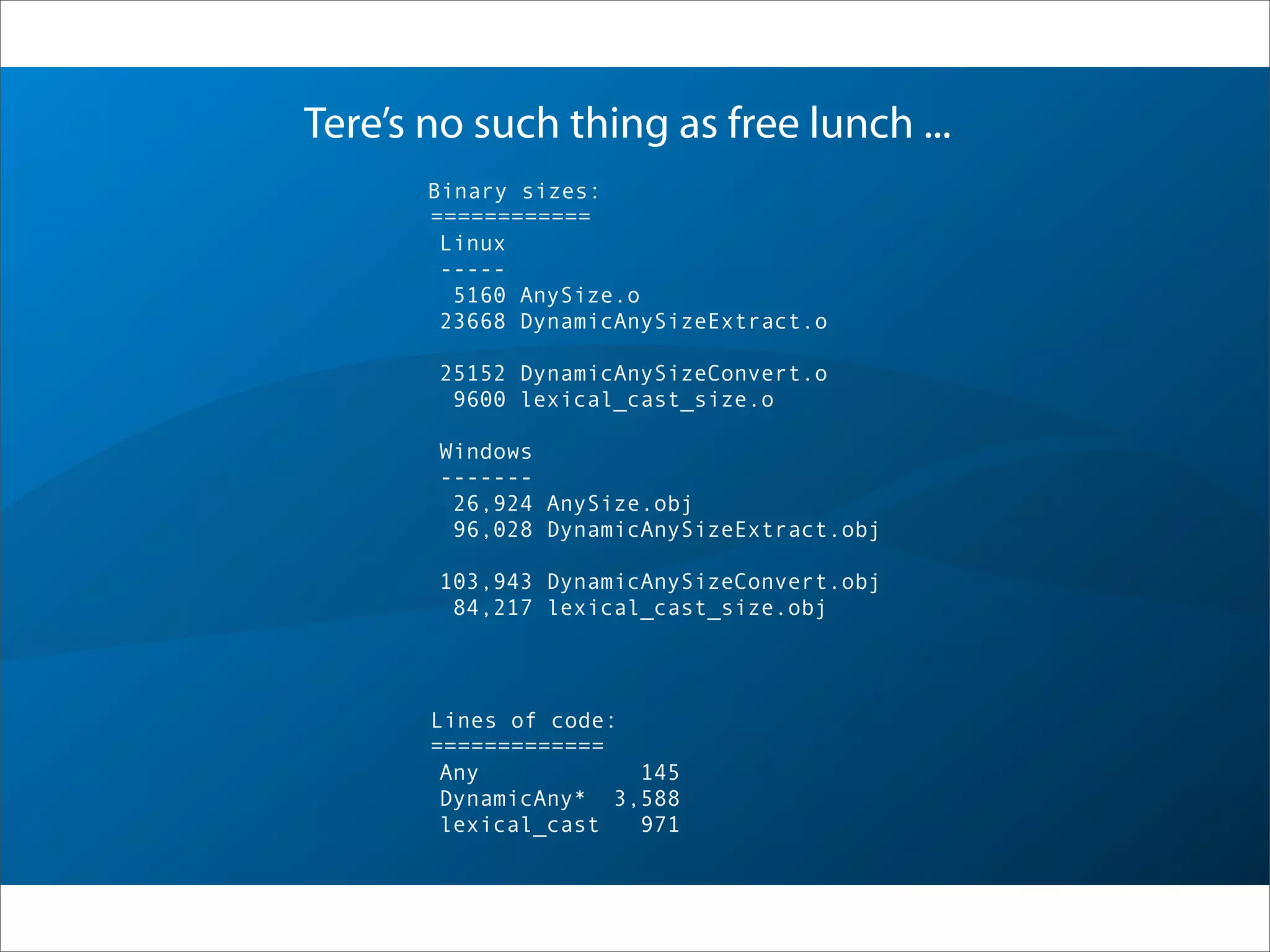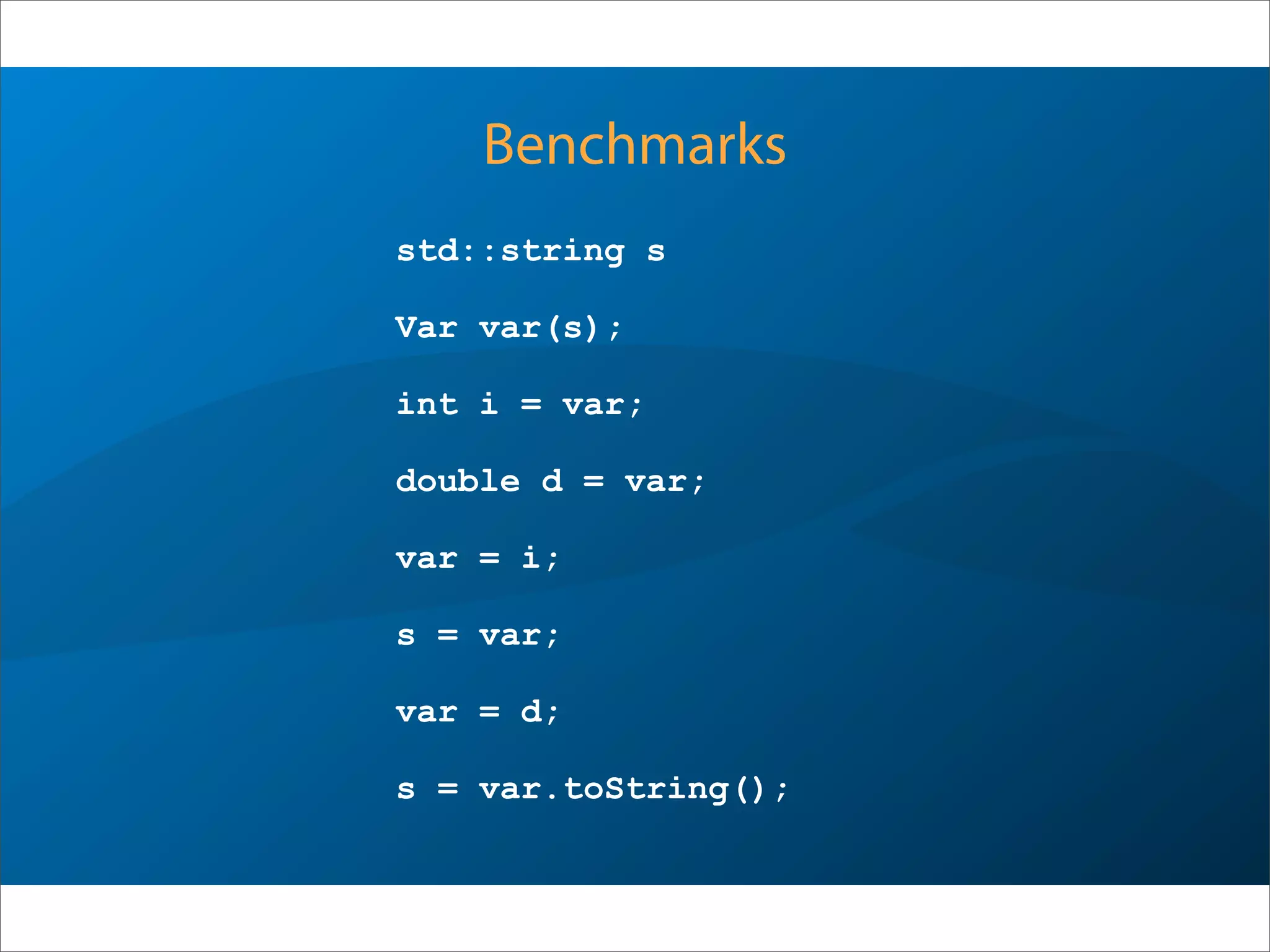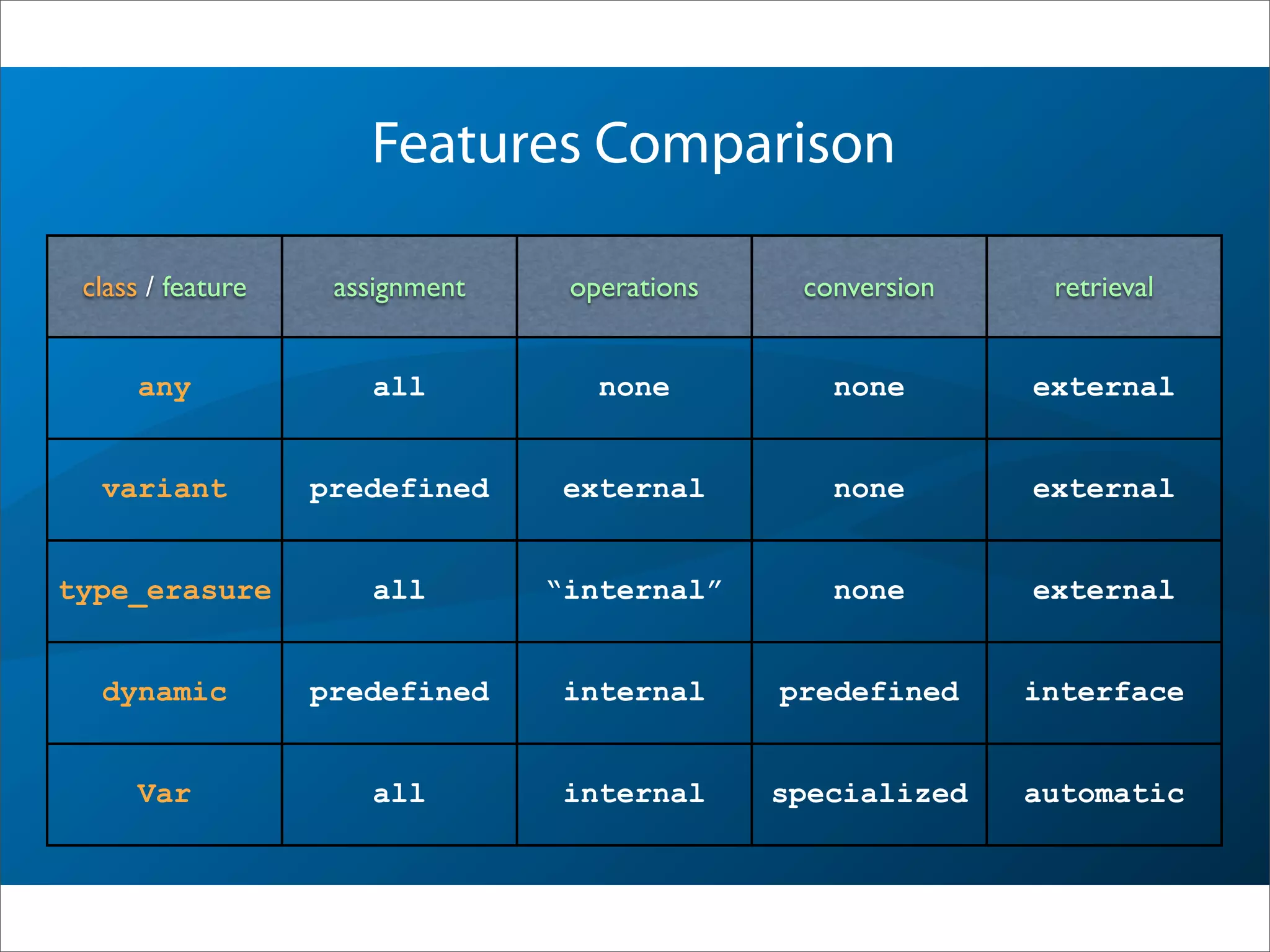The document discusses dynamic programming in C++ through various libraries and concepts such as boost::any, boost::variant, and boost::type_erasure, highlighting their functionalities for managing diverse data types dynamically. It also touches on implementations like Facebook's folly::dynamic and Poco's dynamic::var, emphasizing ease of use and performance while noting some limitations regarding portability and complexity. Overall, it provides insights into dynamic data storage and operations in C++, offering solutions to common issues with type handling and conversion.
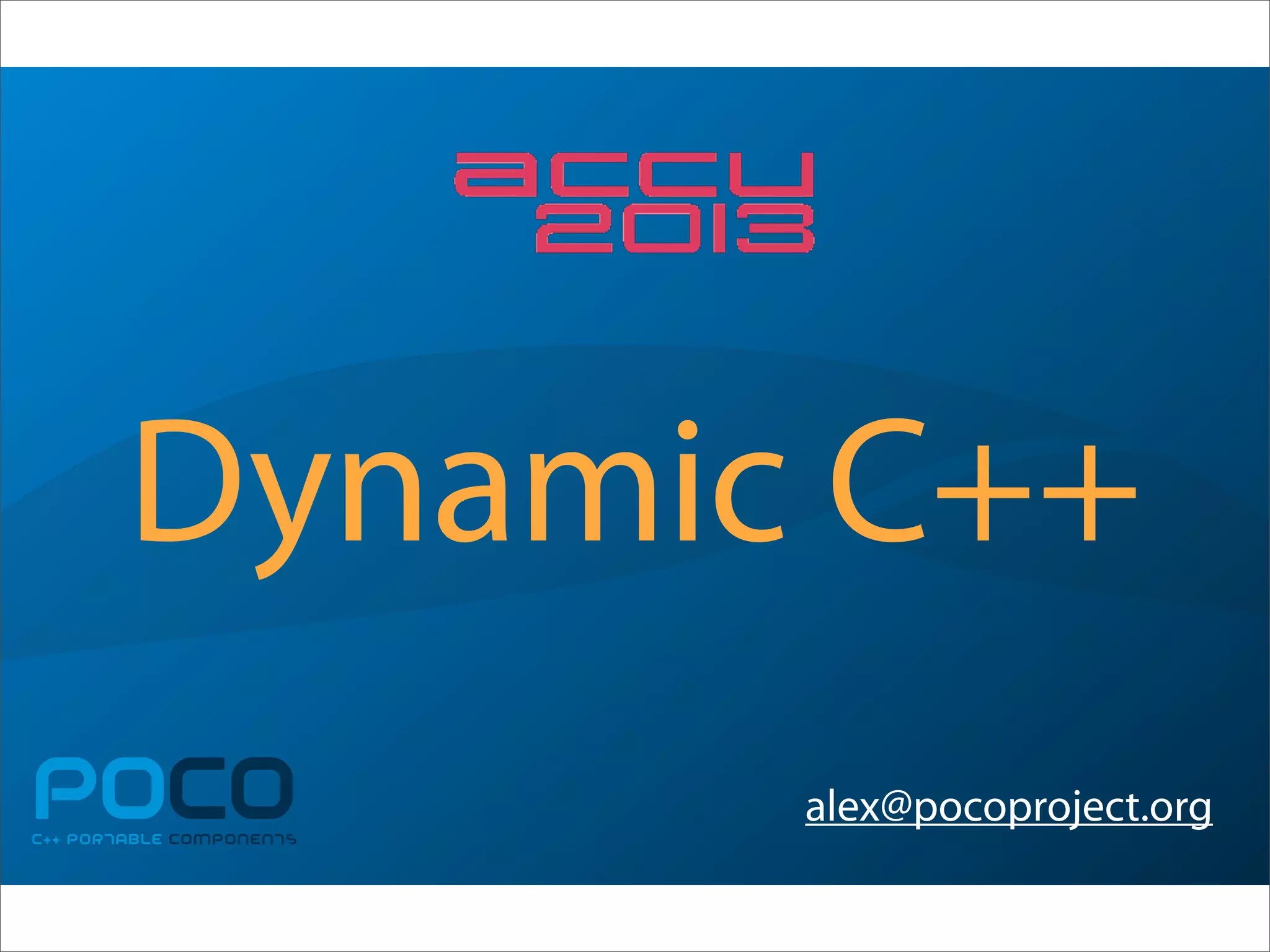
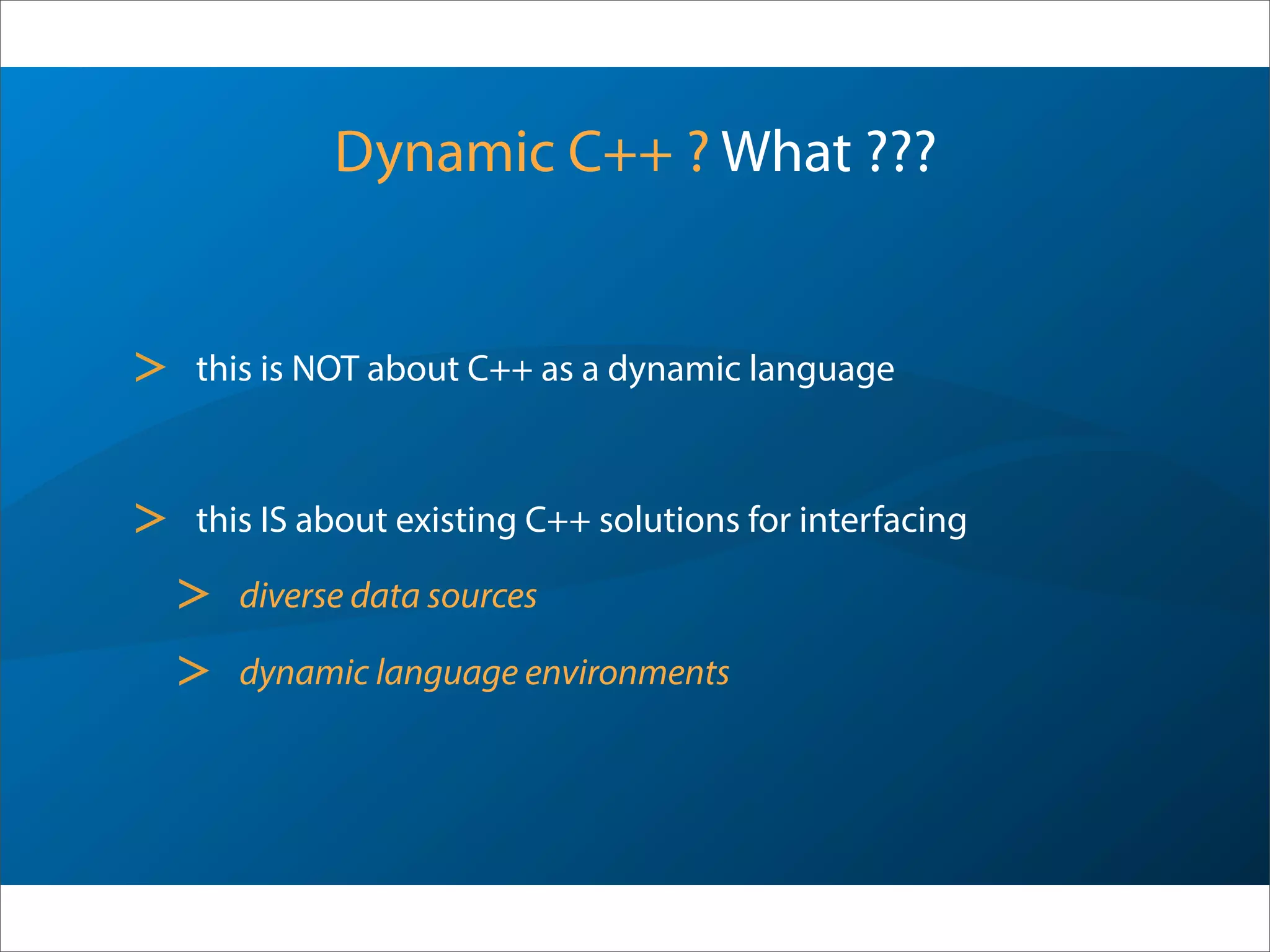






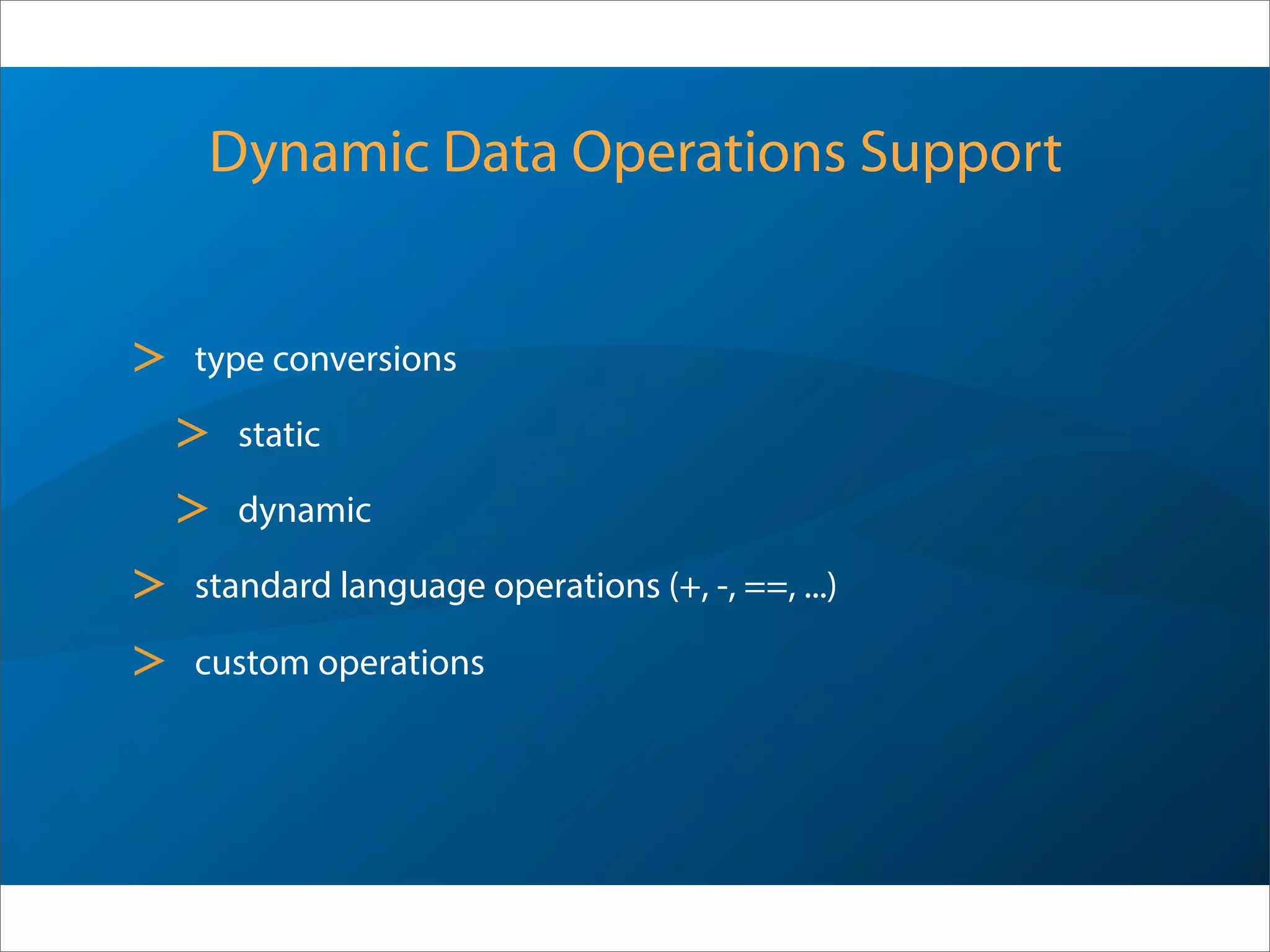
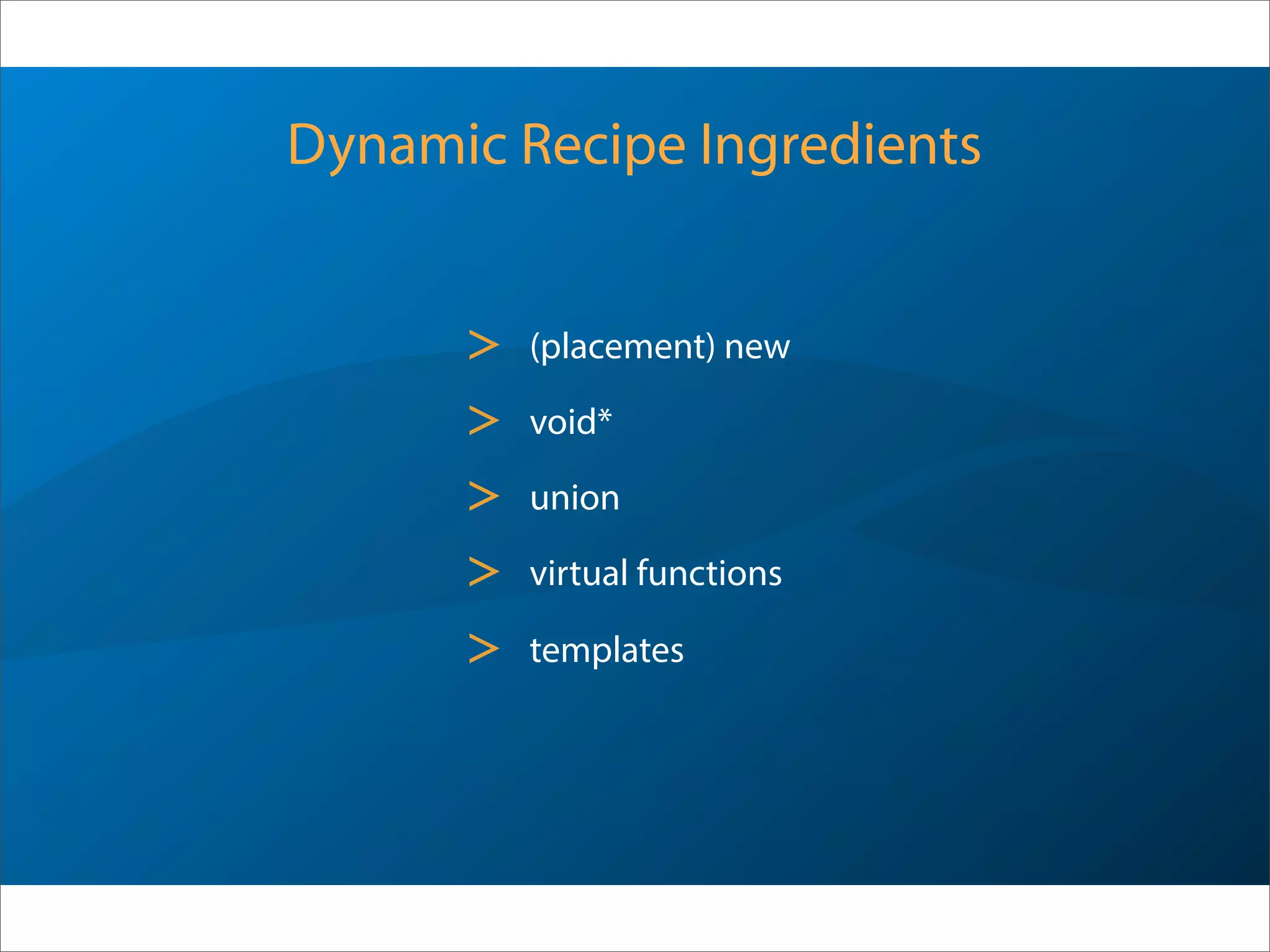
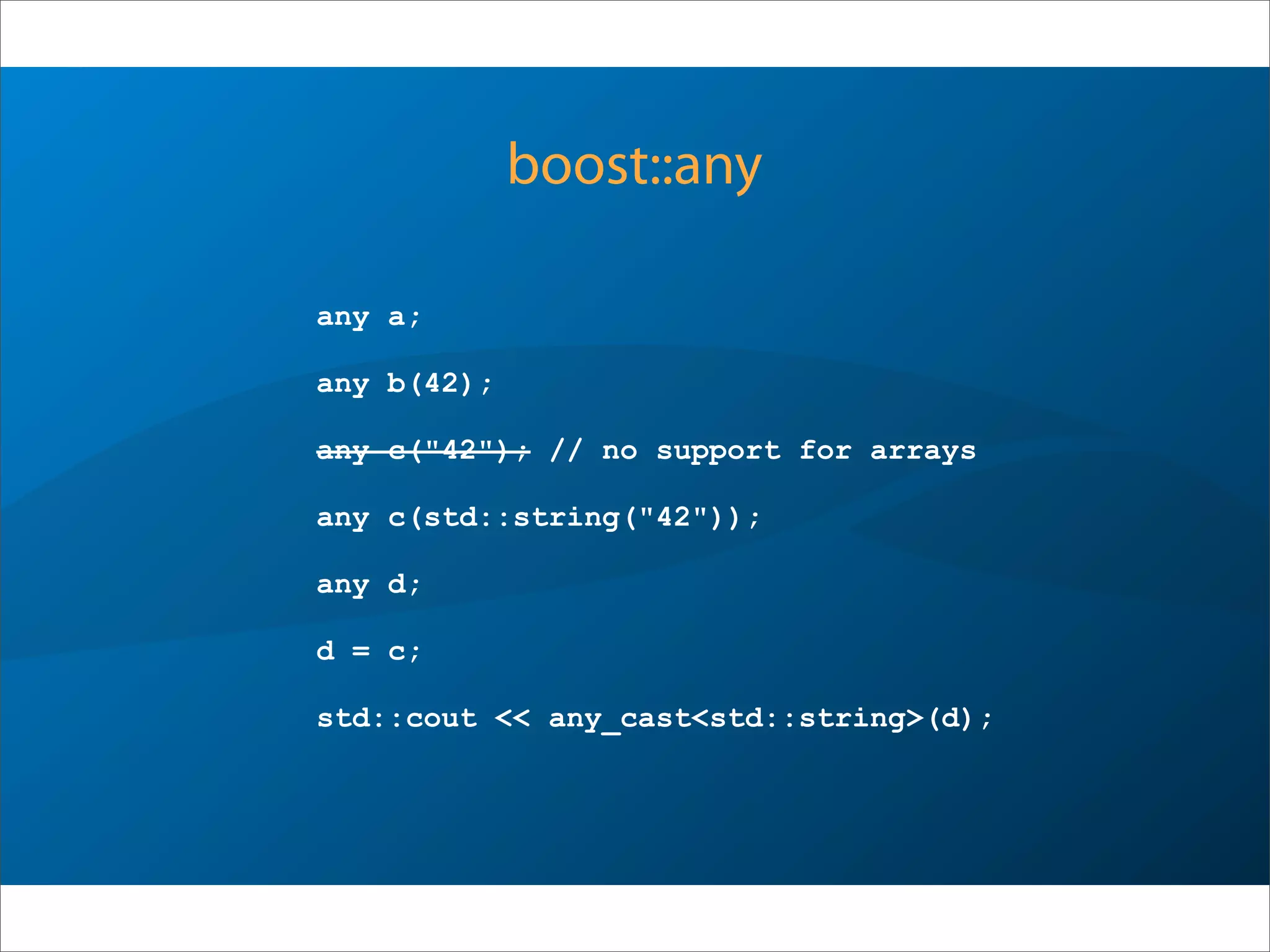
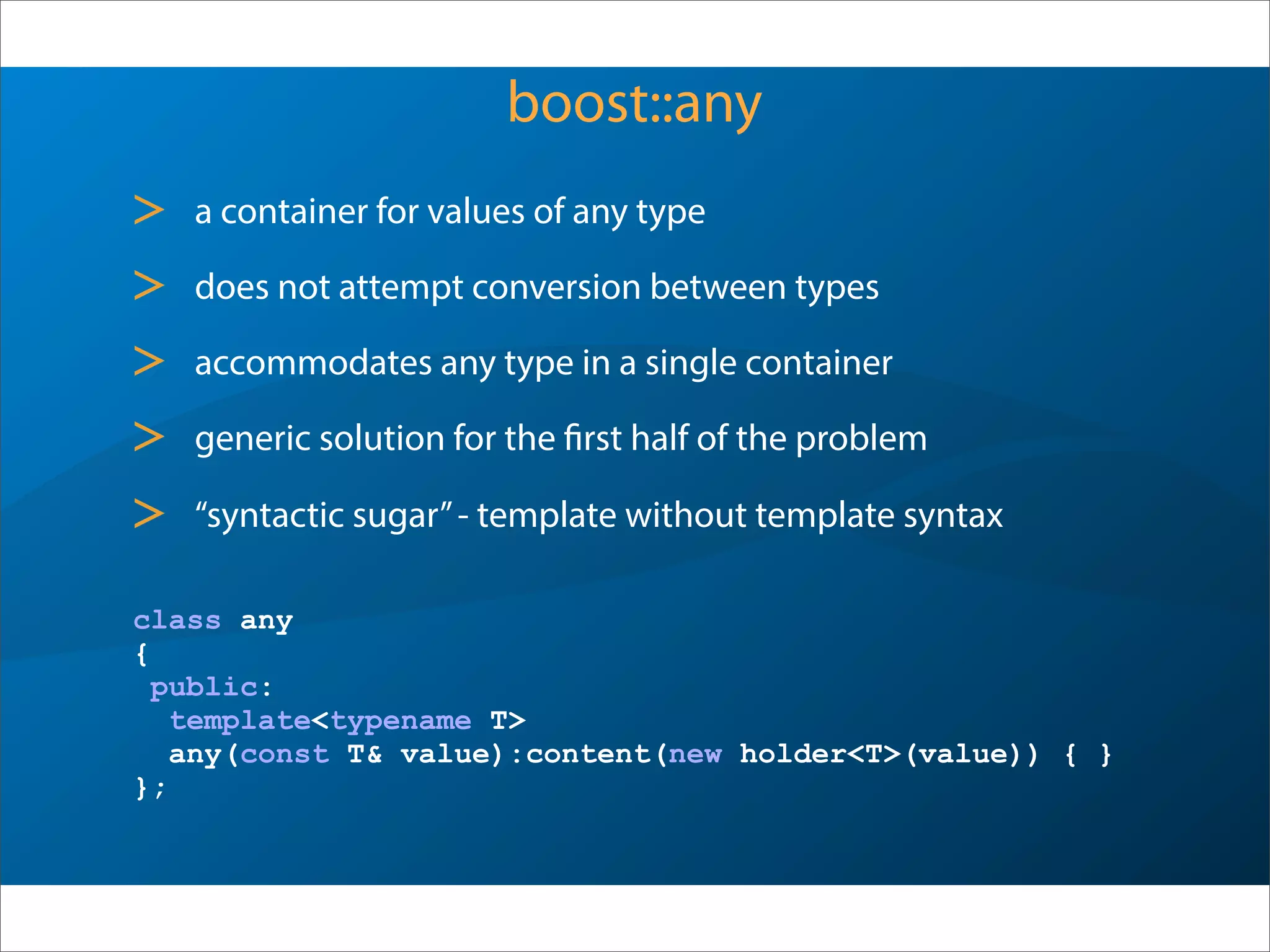
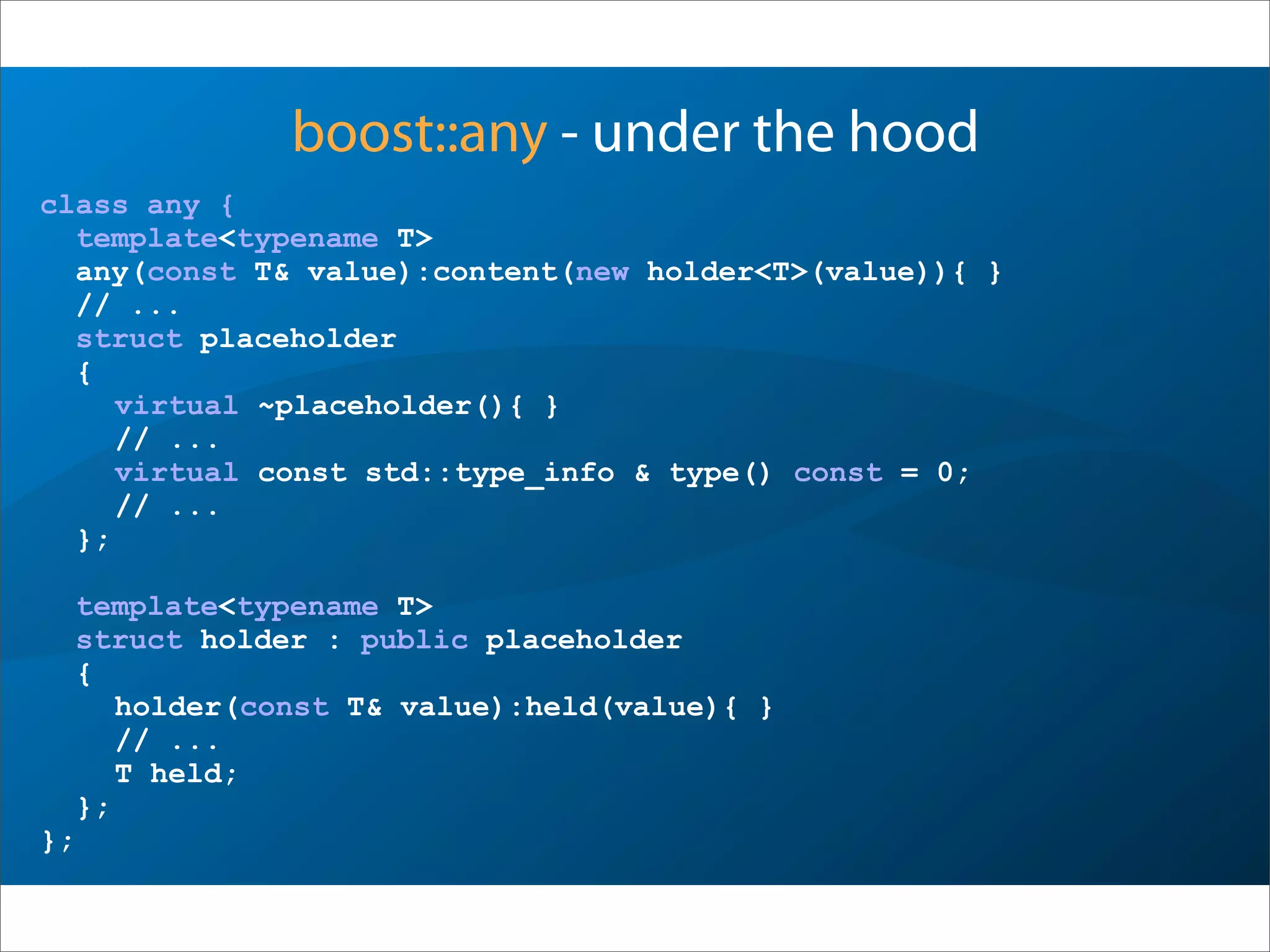
![boost::any - use case
using boost::any;
using boost::any_cast;
using std::string;
std::list<any> values;
short ival = 42;
string sval = “fourty two”;
values.push_back(ival);
values.push_back(sval);
dynamic on receiving but static on the giving end
string strval = values[0]; // oops!, compile error
strval = any_cast<string>(values[0]); // still oops!, throw
strval = any_cast<string>(values[1]); // OK
short itval = any_cast<short>(values[0]); // OK
int itval = any_cast<int>(values[0]); // throw](https://image.slidesharecdn.com/dynamiccaccu2013-130412011108-phpapp02/75/Dynamic-C-ACCU-2013-14-2048.jpg)
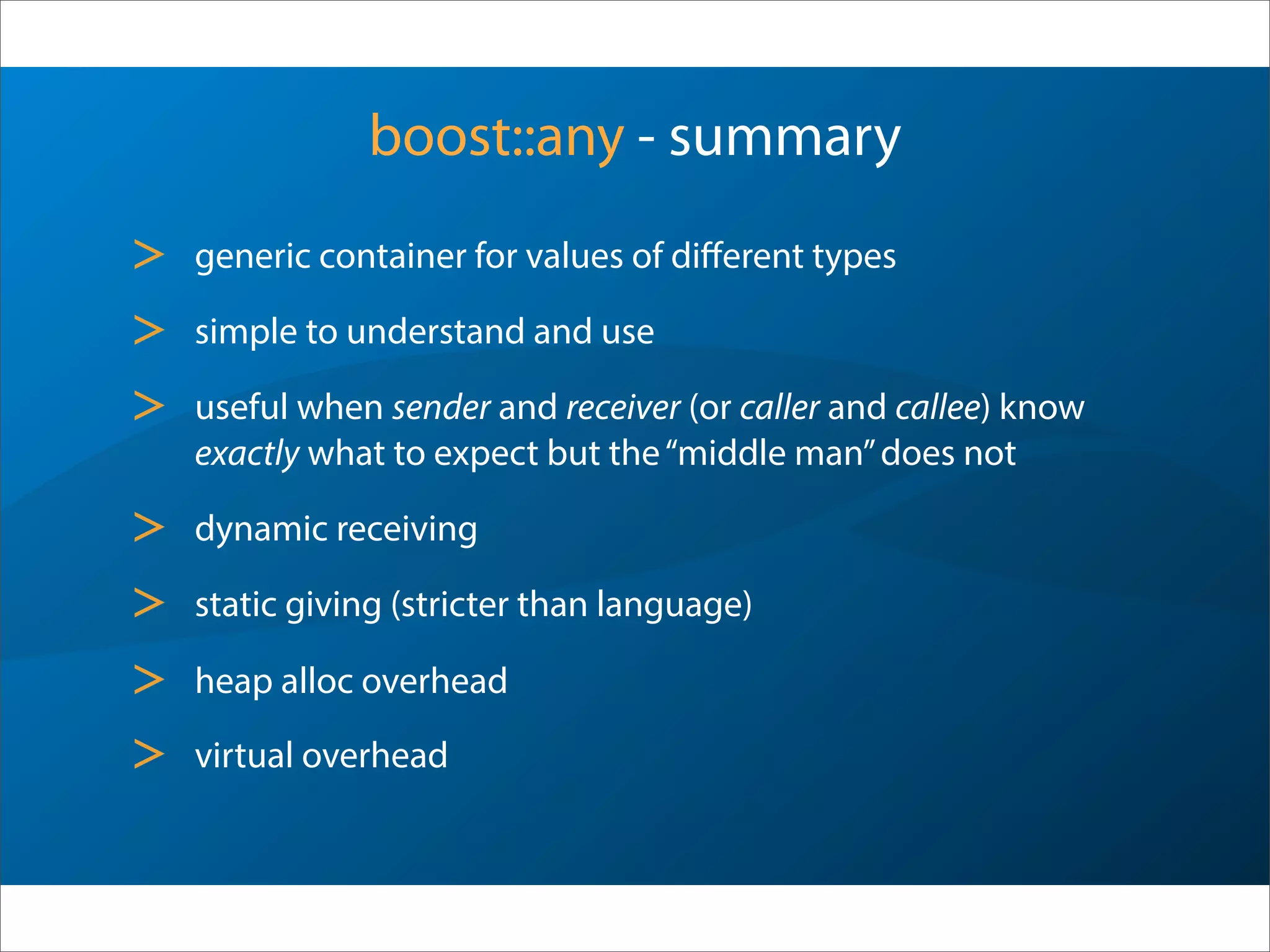
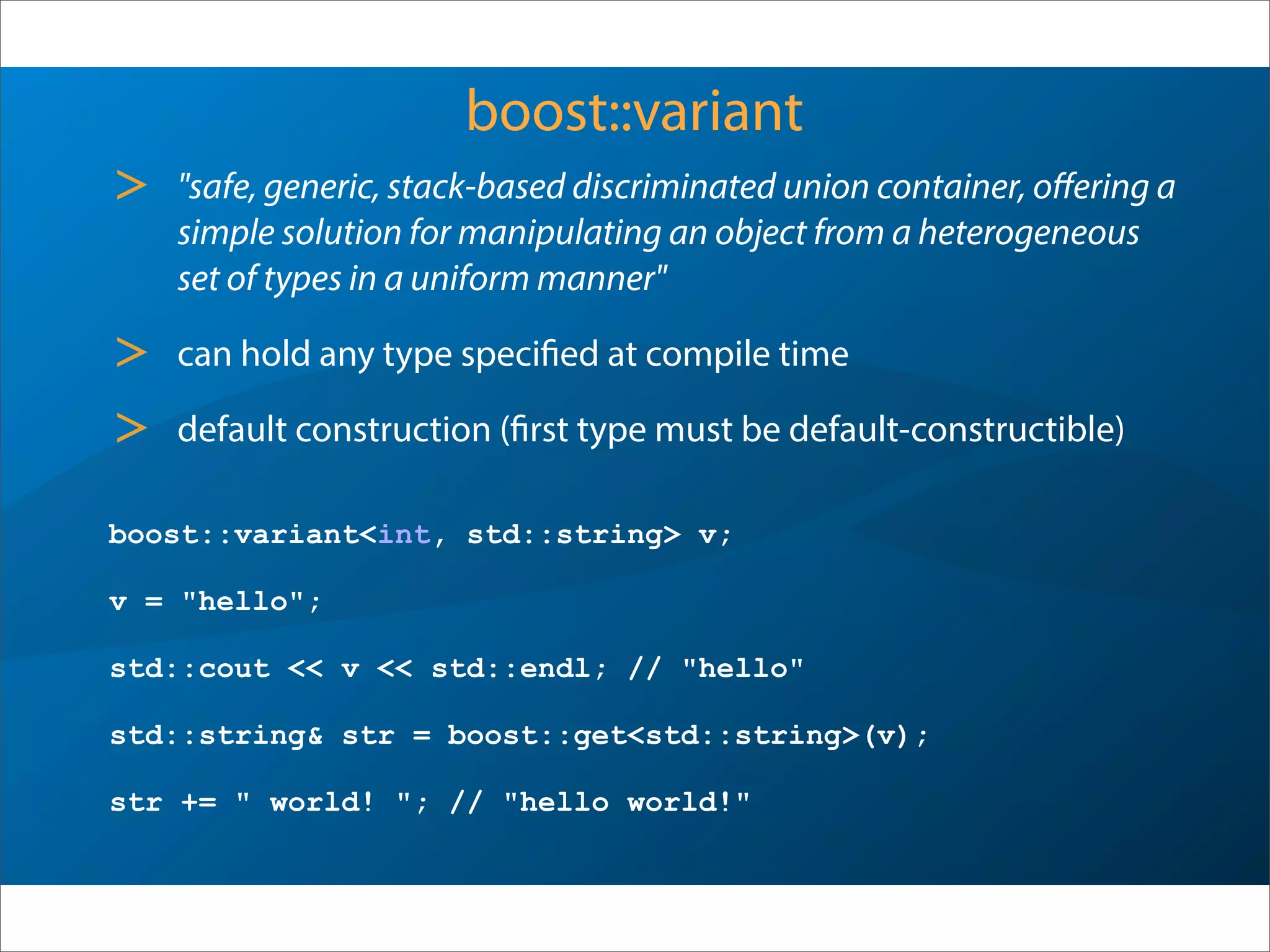
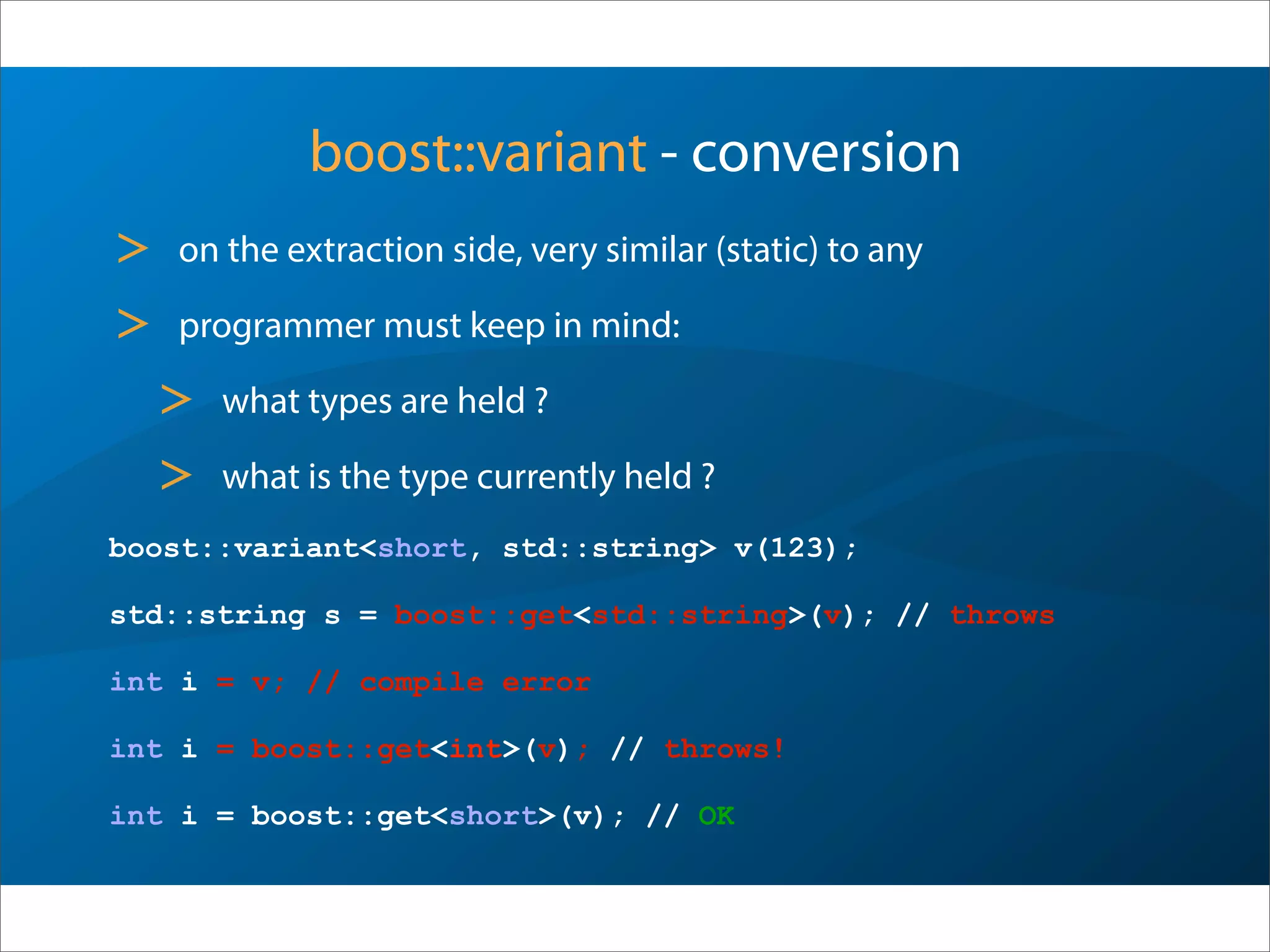
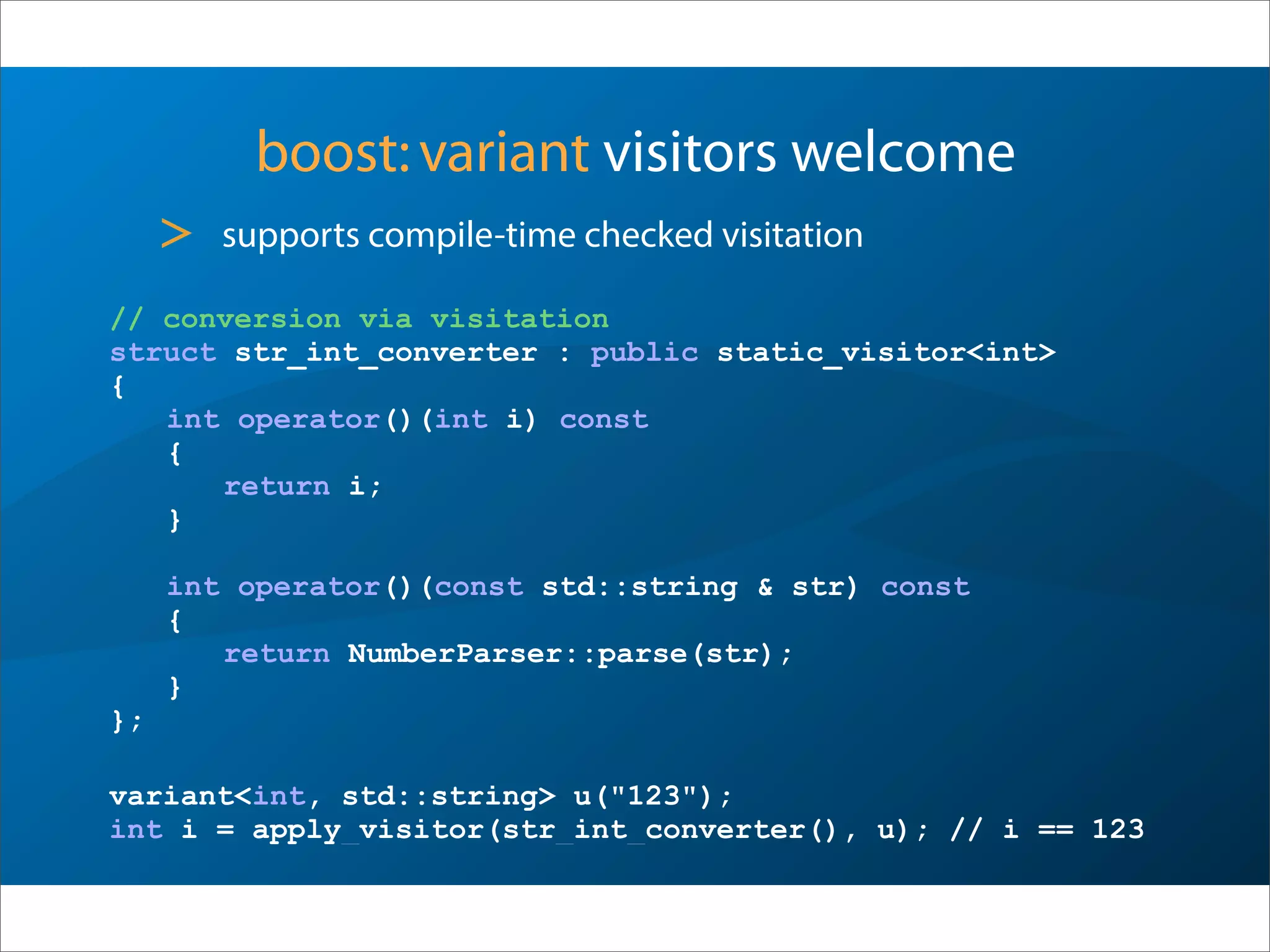
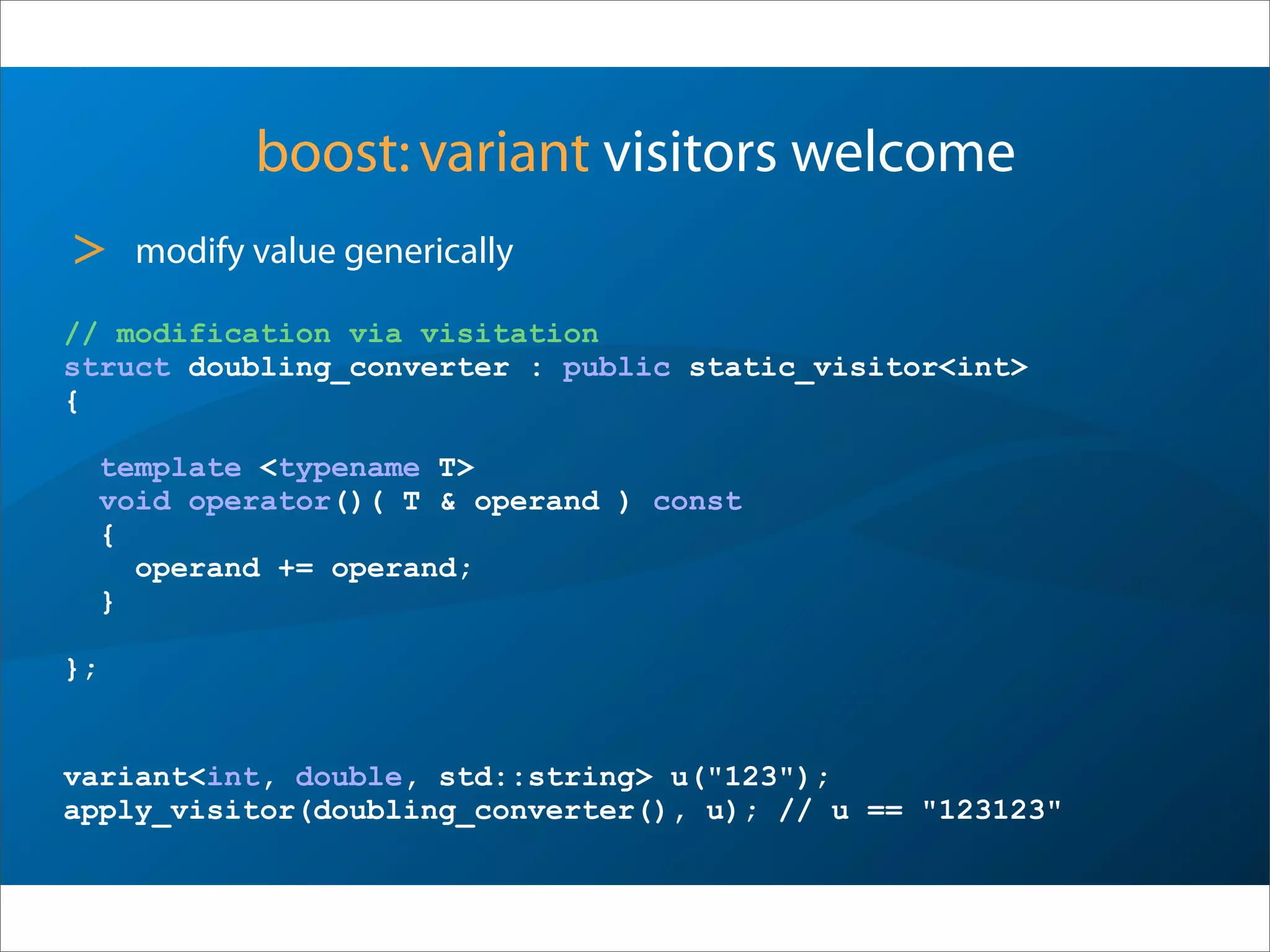
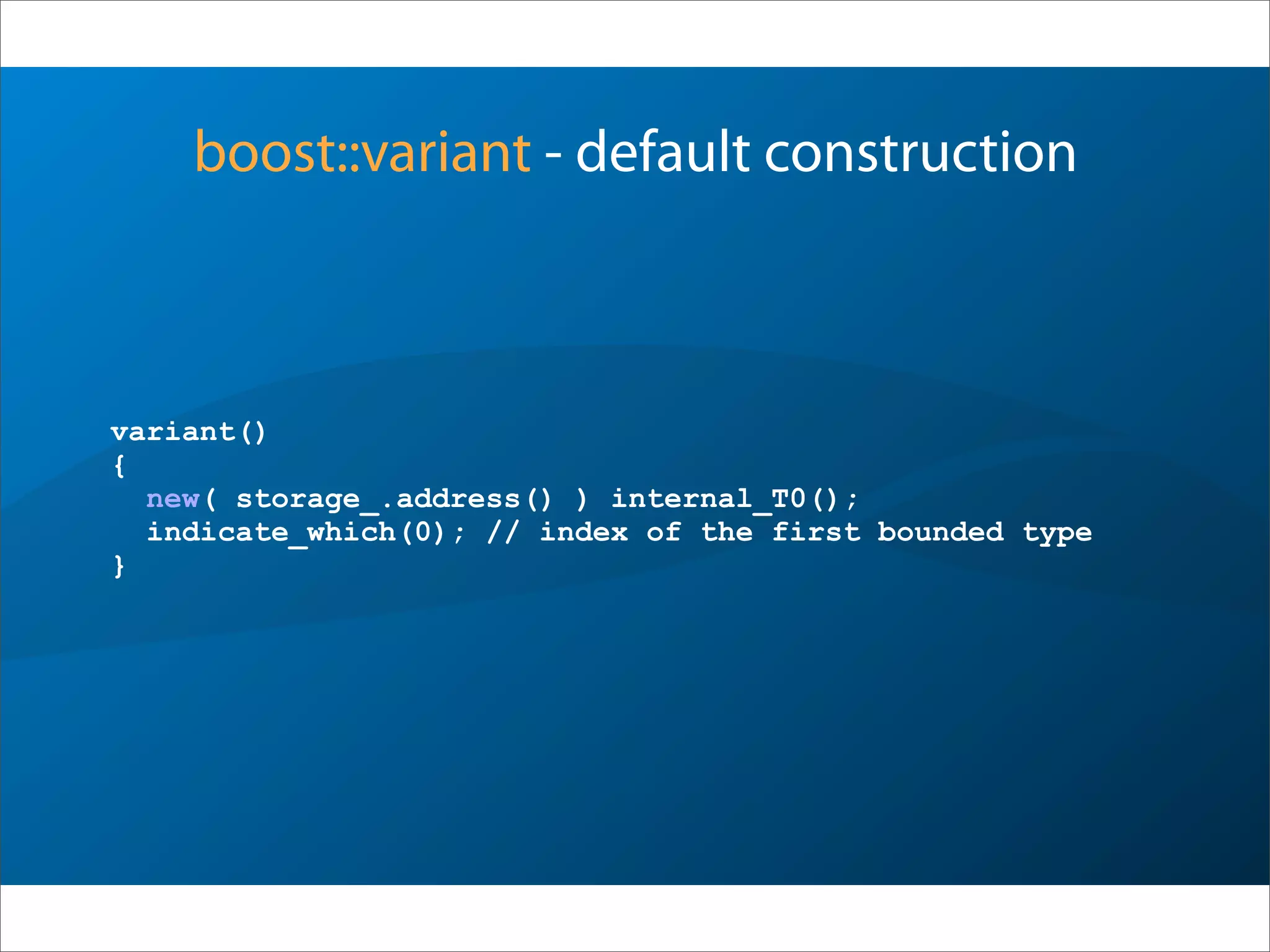
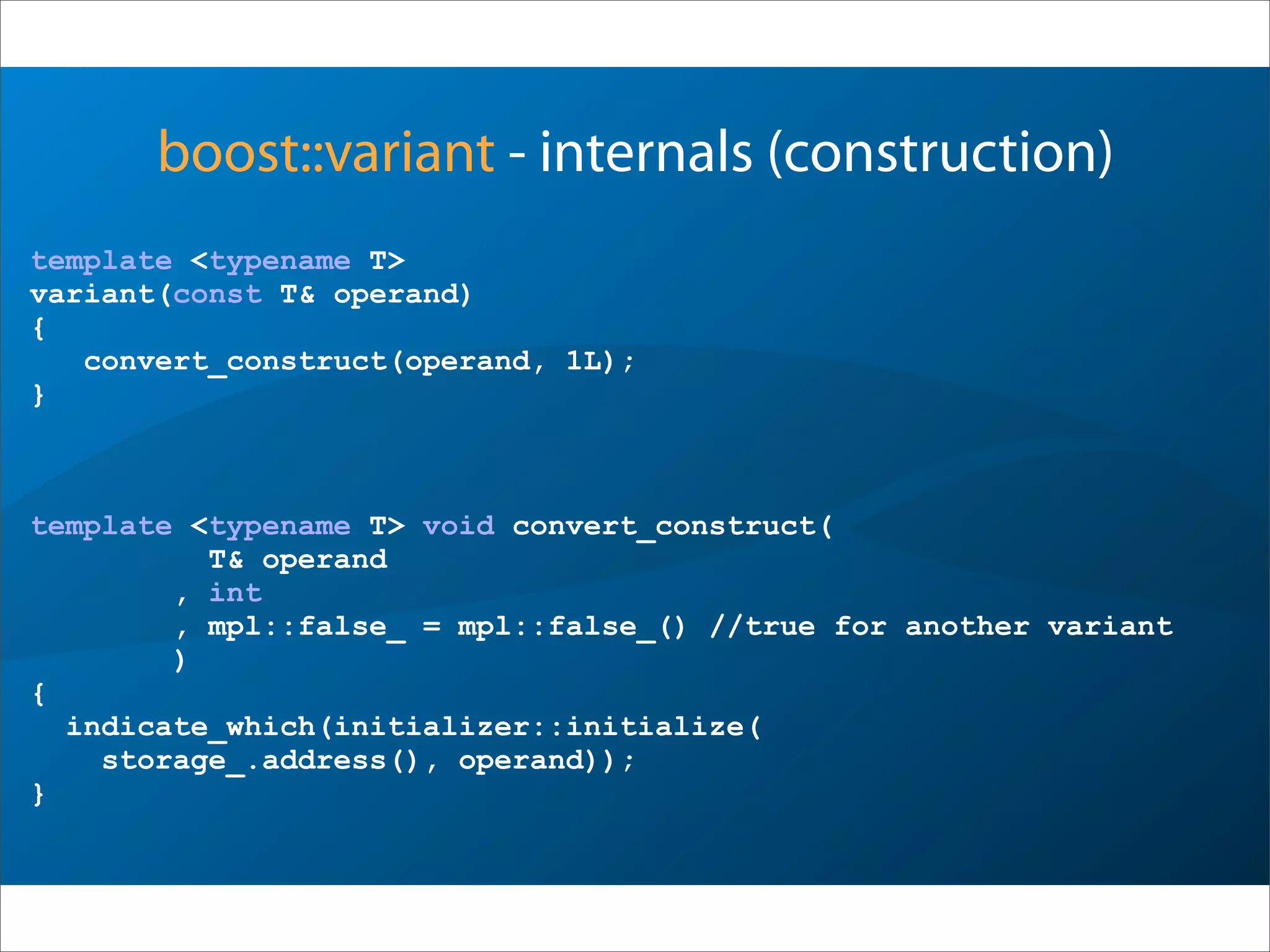
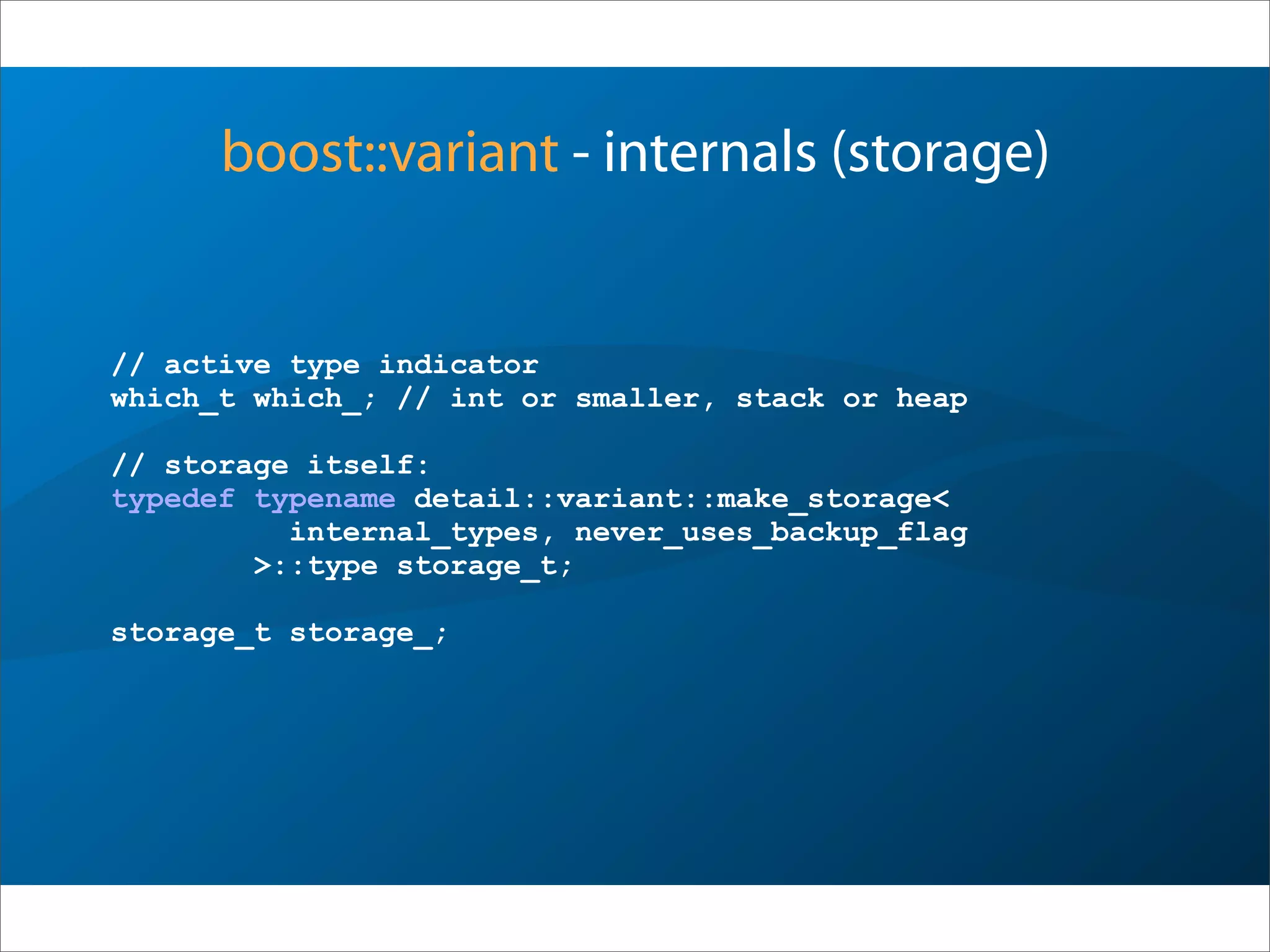
![boost::variant - internals (storage)
template <std::size_t size_, std::size_t alignment_>
struct aligned_storage_imp
{
union data_t
{
char buf[size_];
typename mpl::eval_if_c<alignment_ == std::size_t(-1)
, mpl::identity<detail::max_align>
, type_with_alignment<alignment_>
>::type align_;
} data_;
void* address() const
{
return const_cast<aligned_storage_imp*>(this);
}
};](https://image.slidesharecdn.com/dynamiccaccu2013-130412011108-phpapp02/75/Dynamic-C-ACCU-2013-23-2048.jpg)
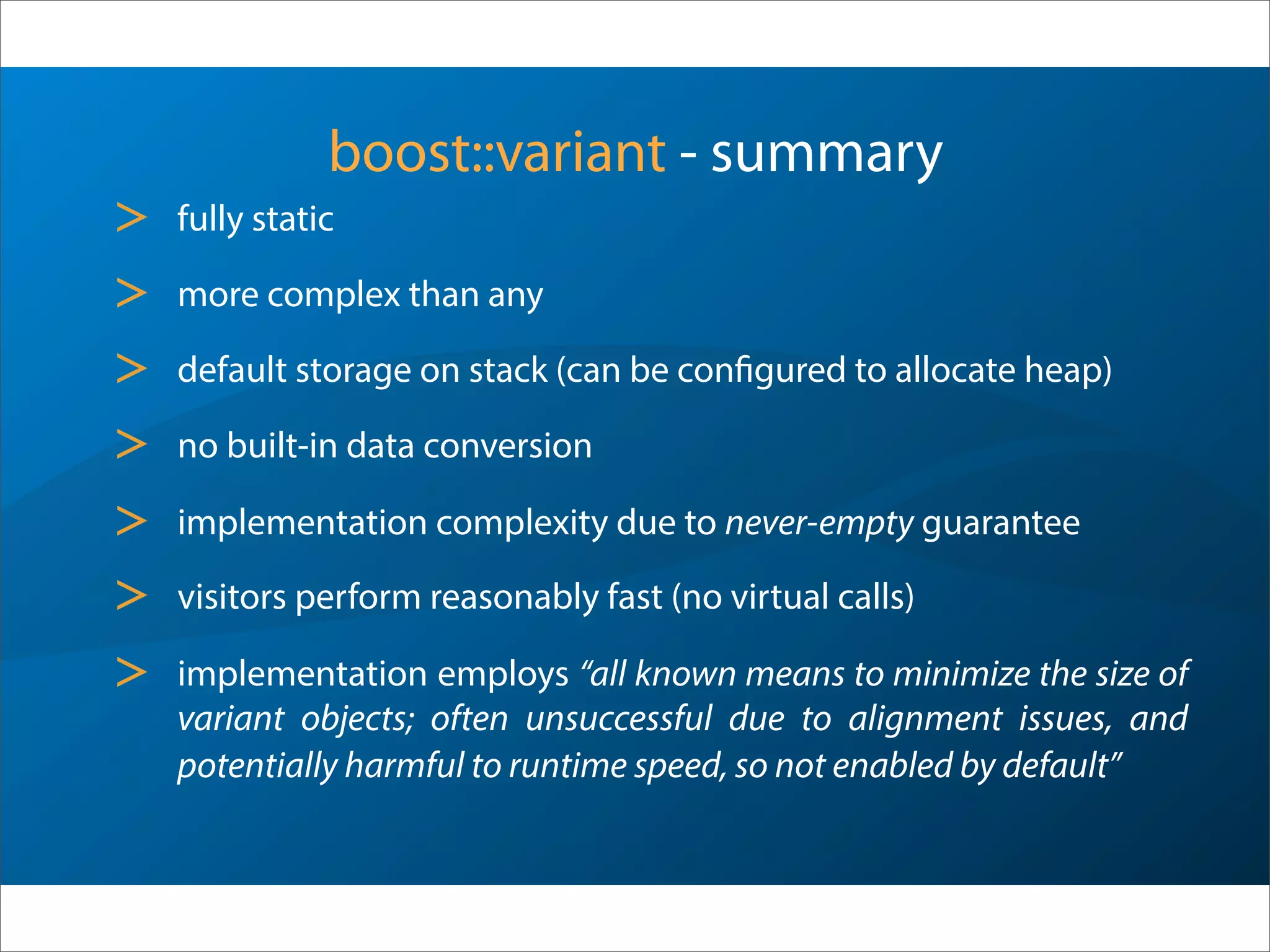


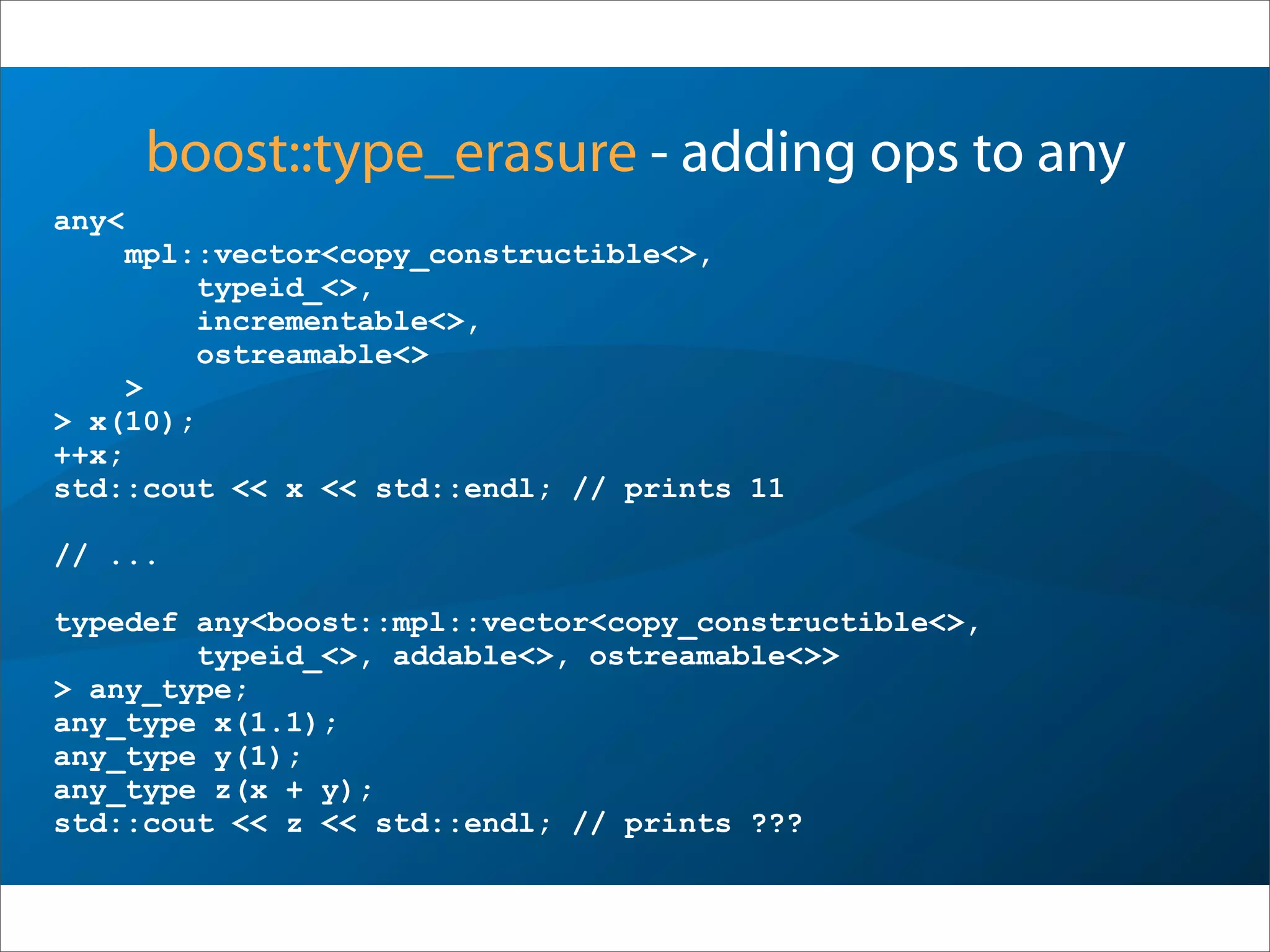
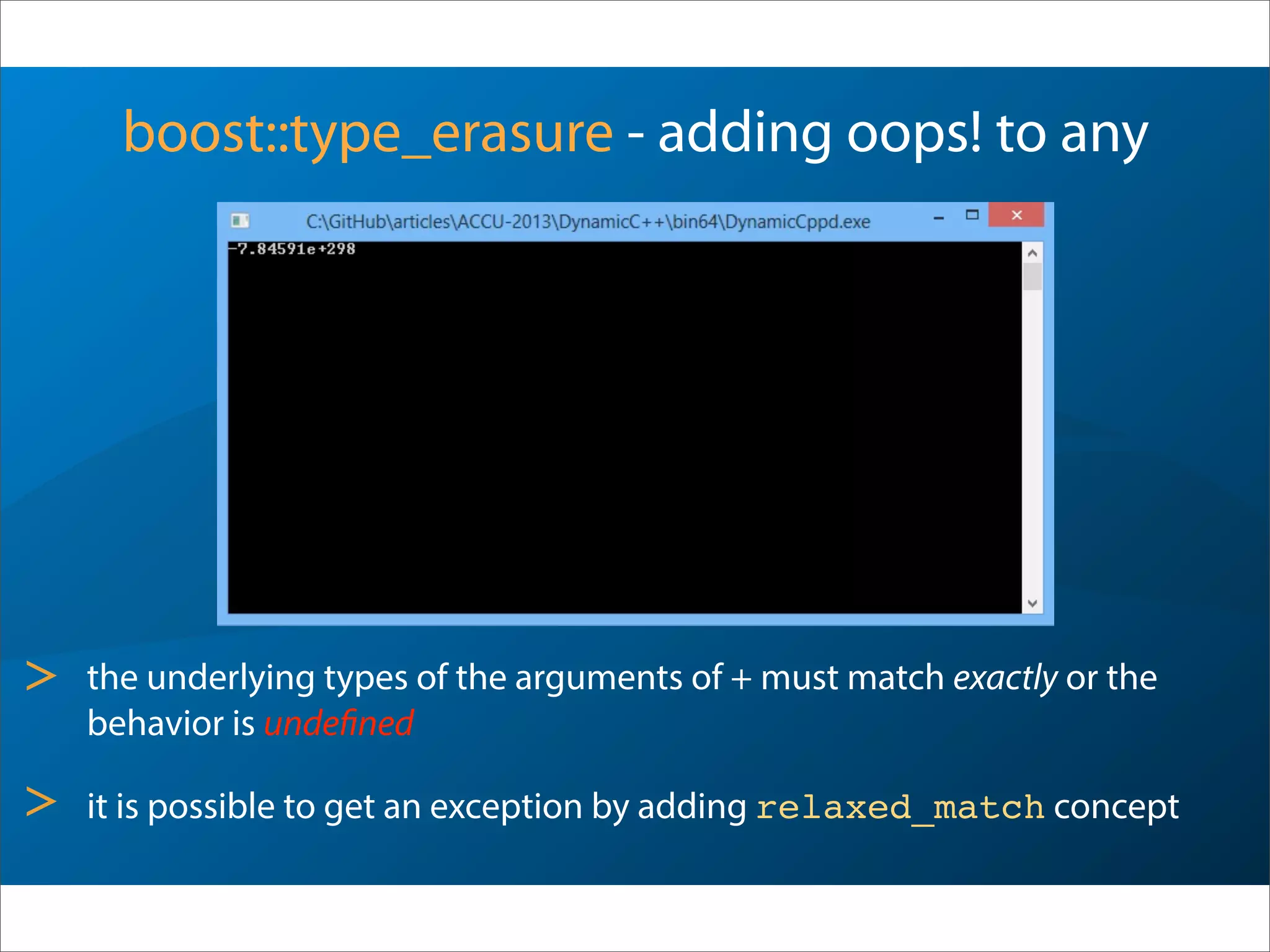
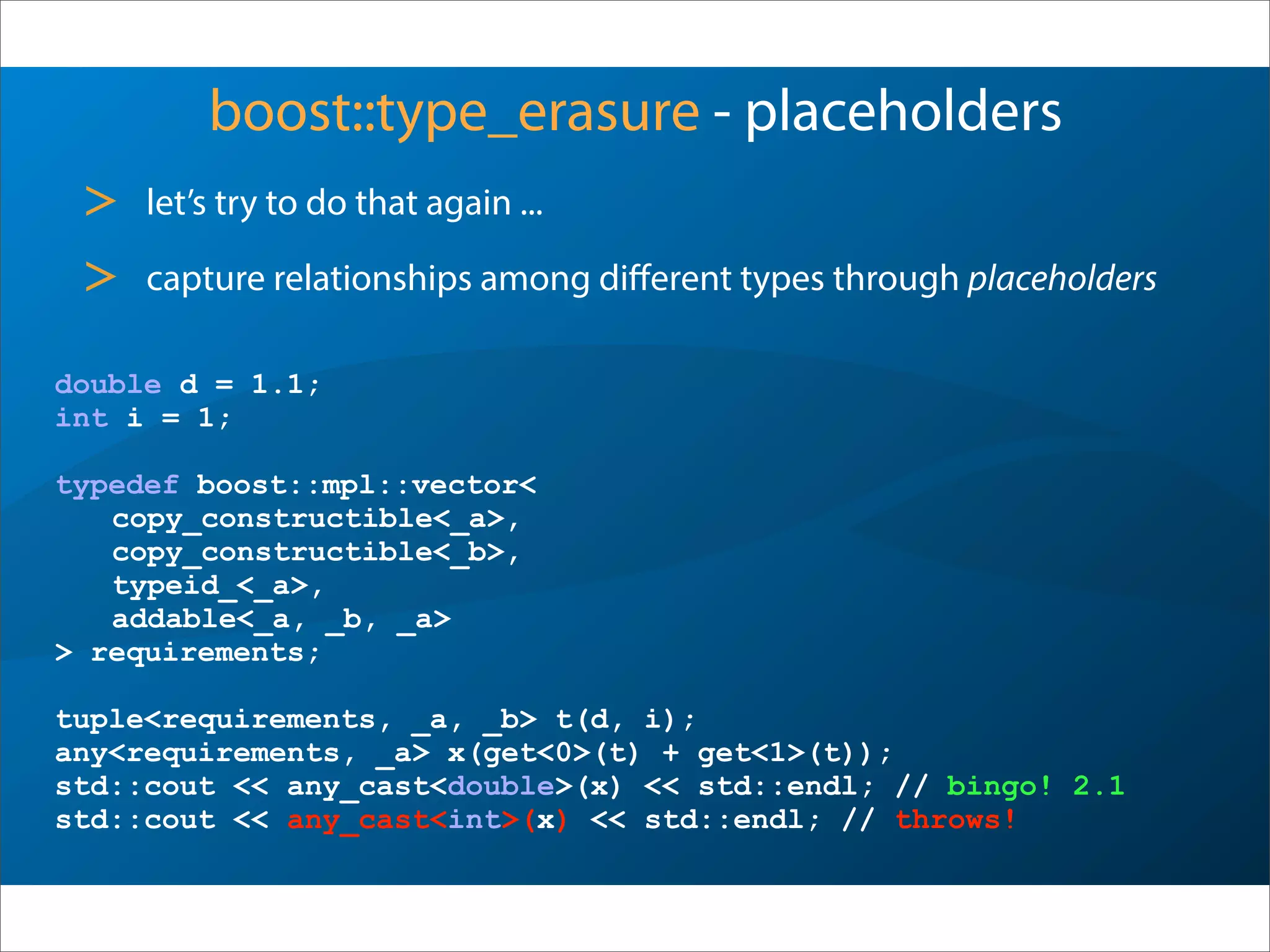
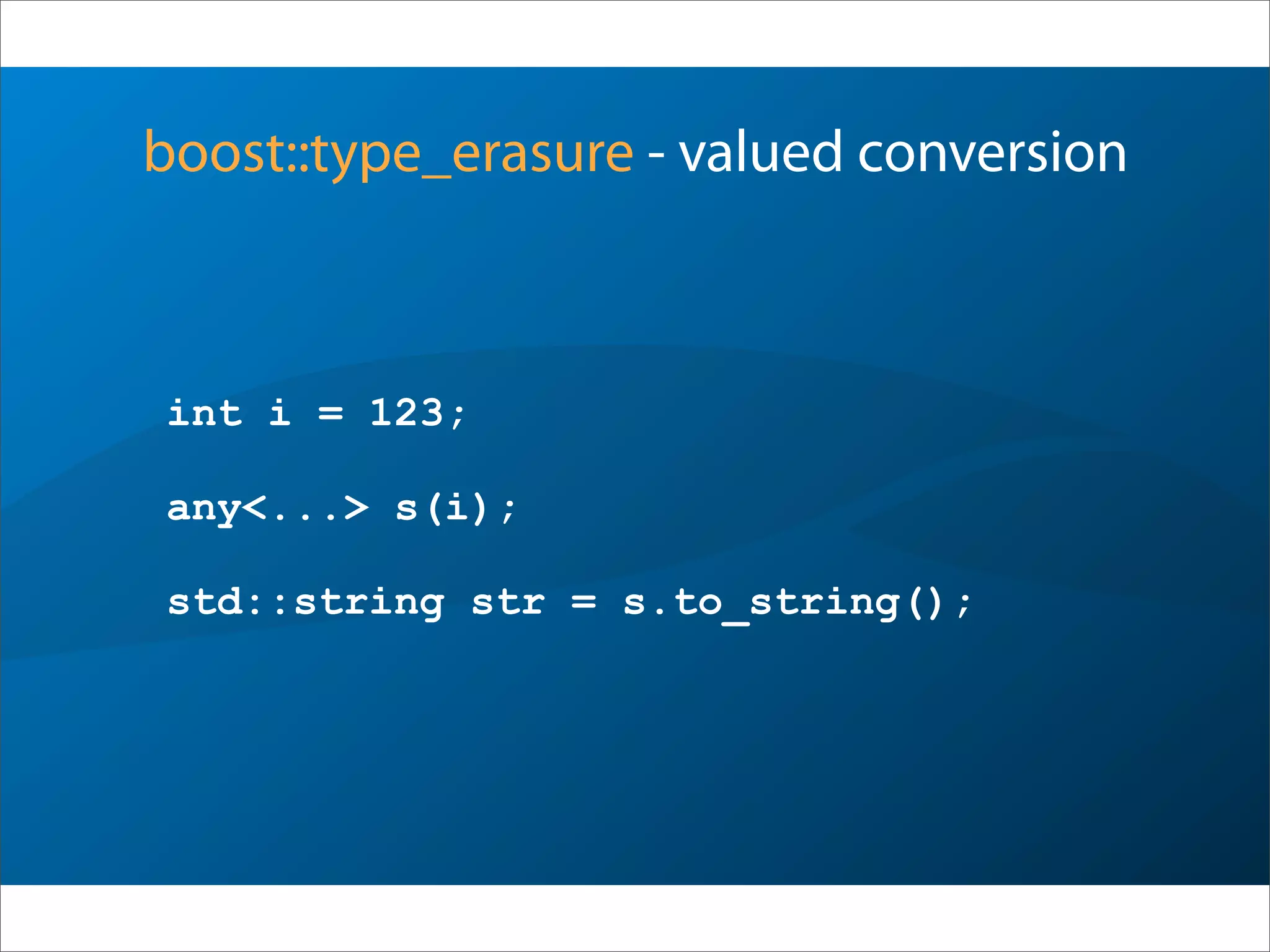
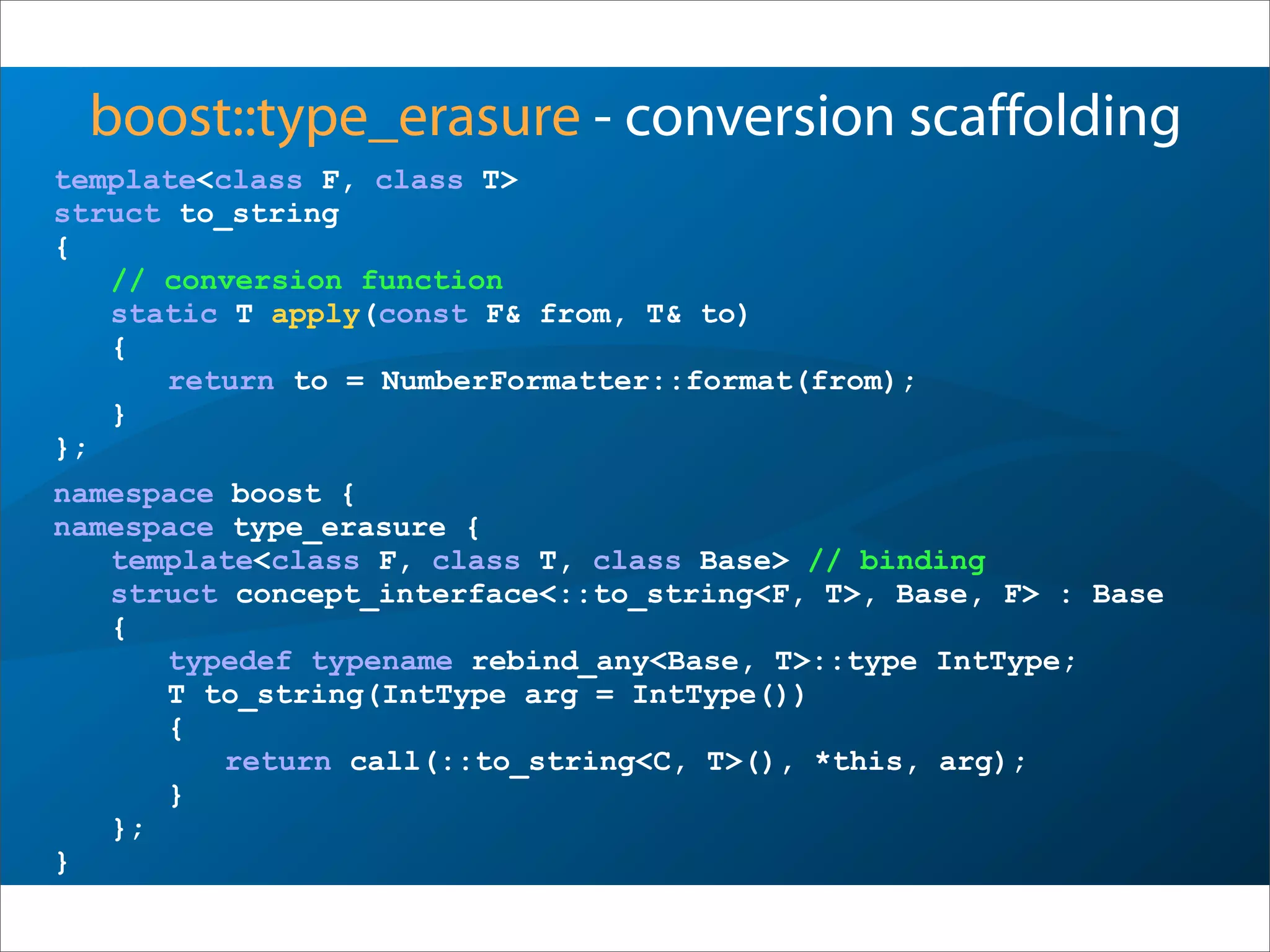
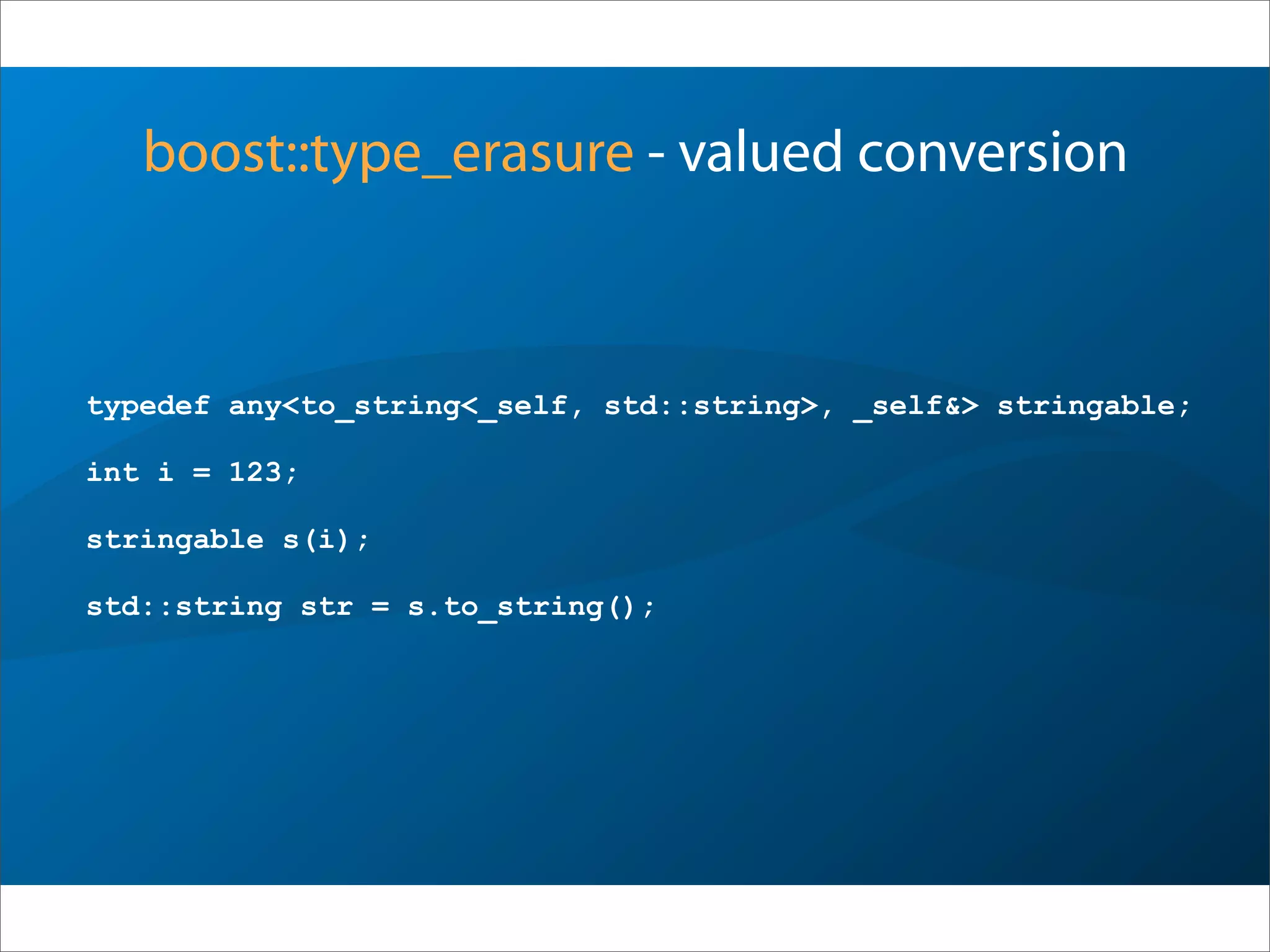
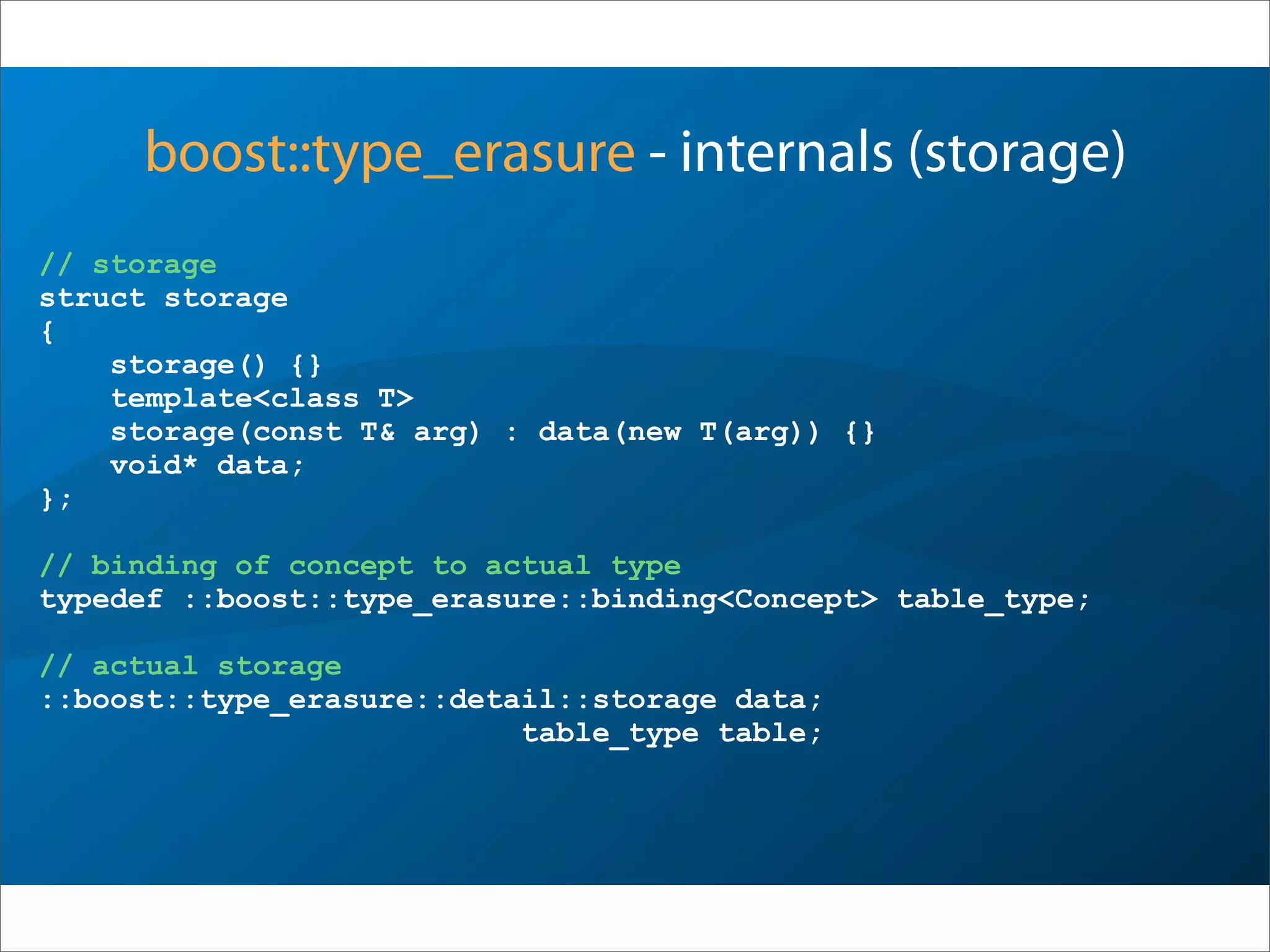

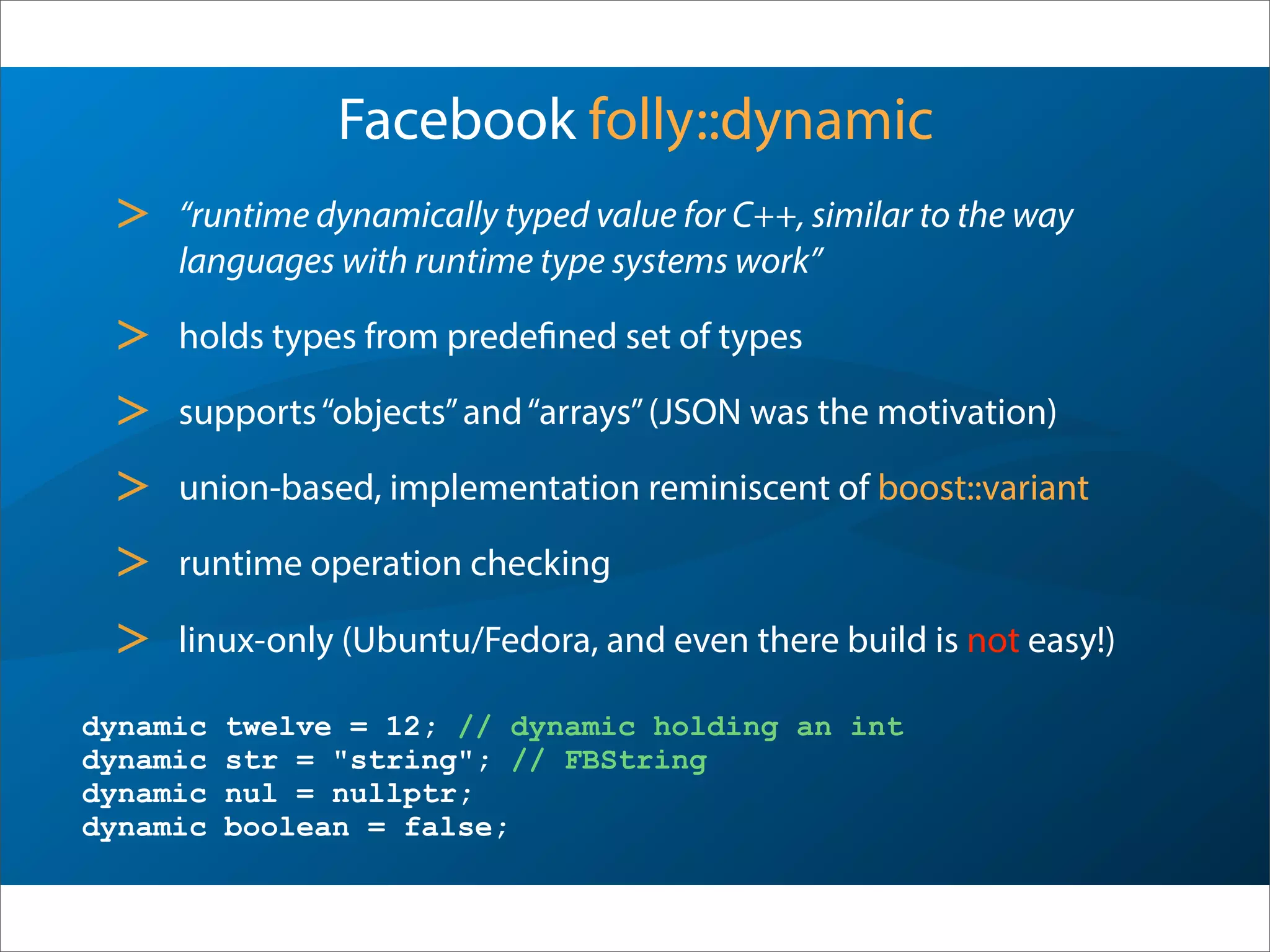
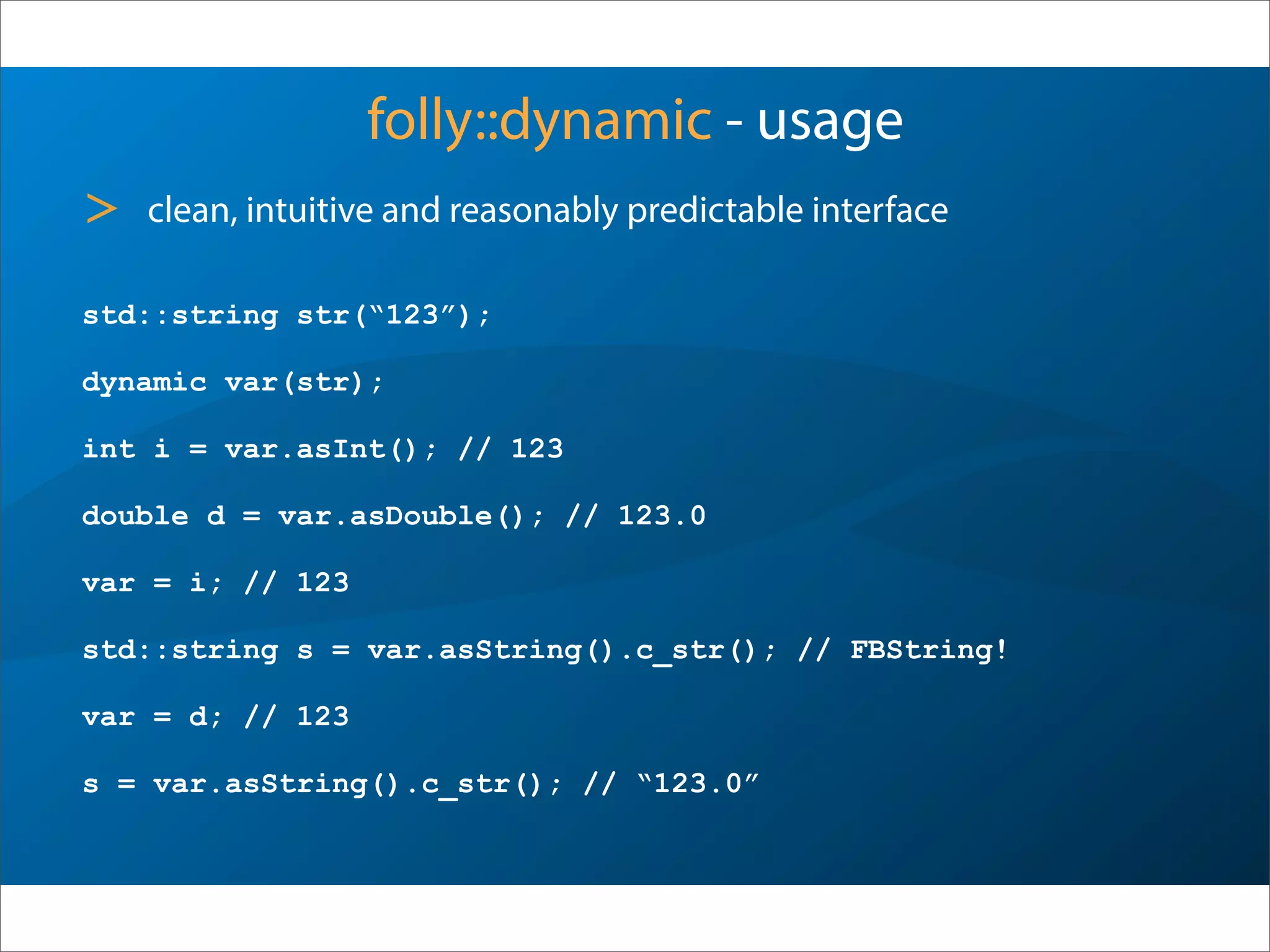

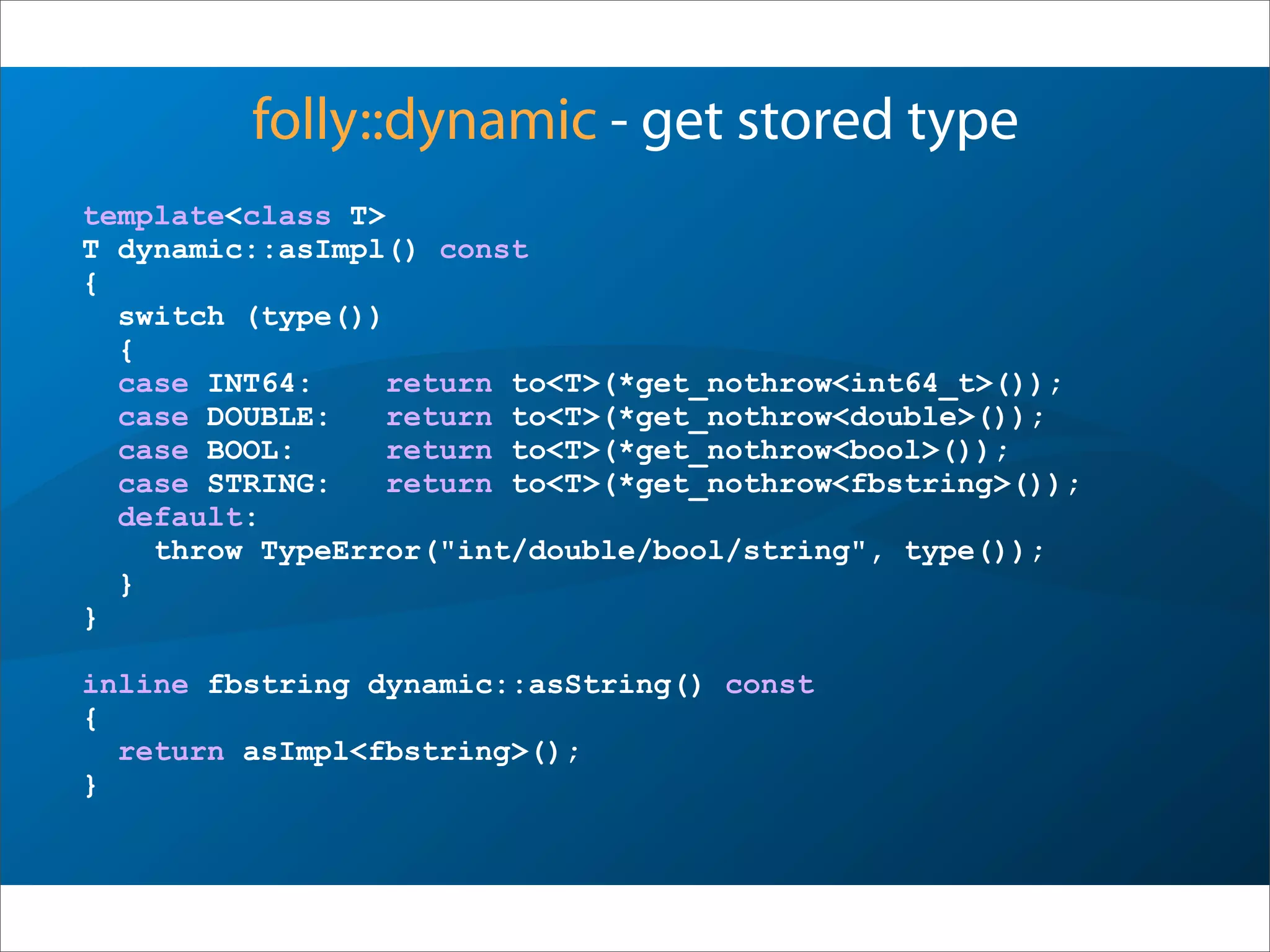
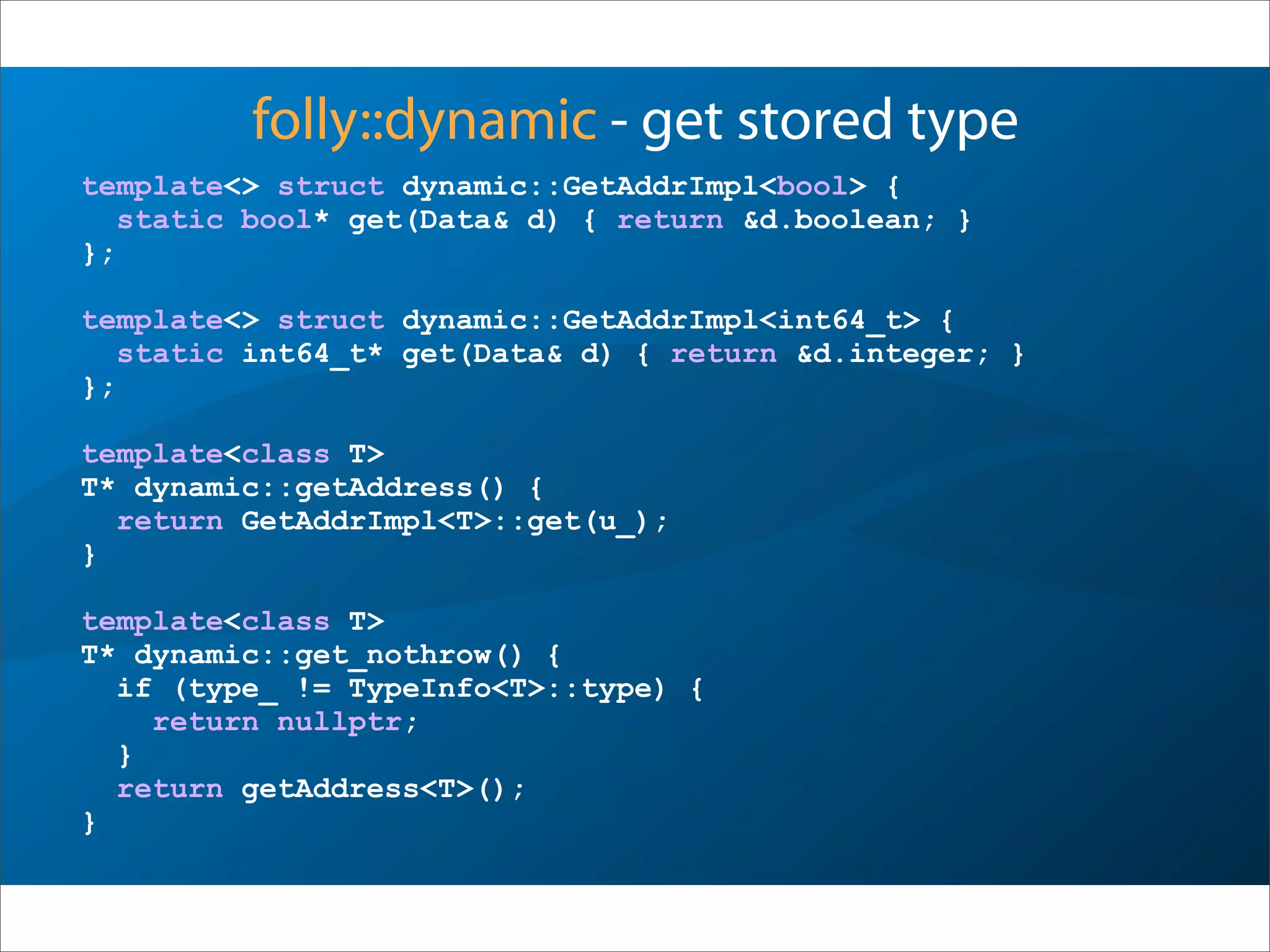
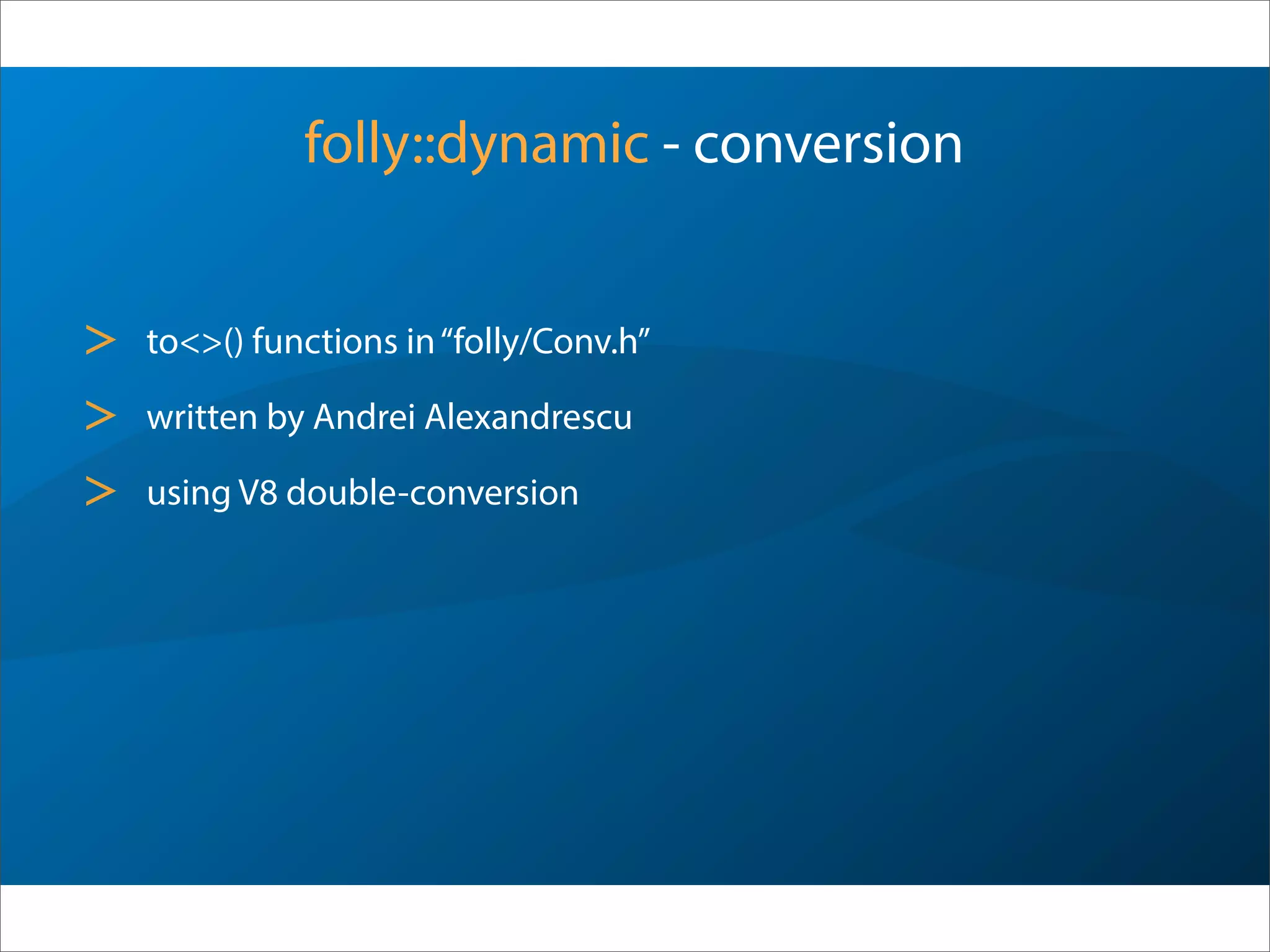
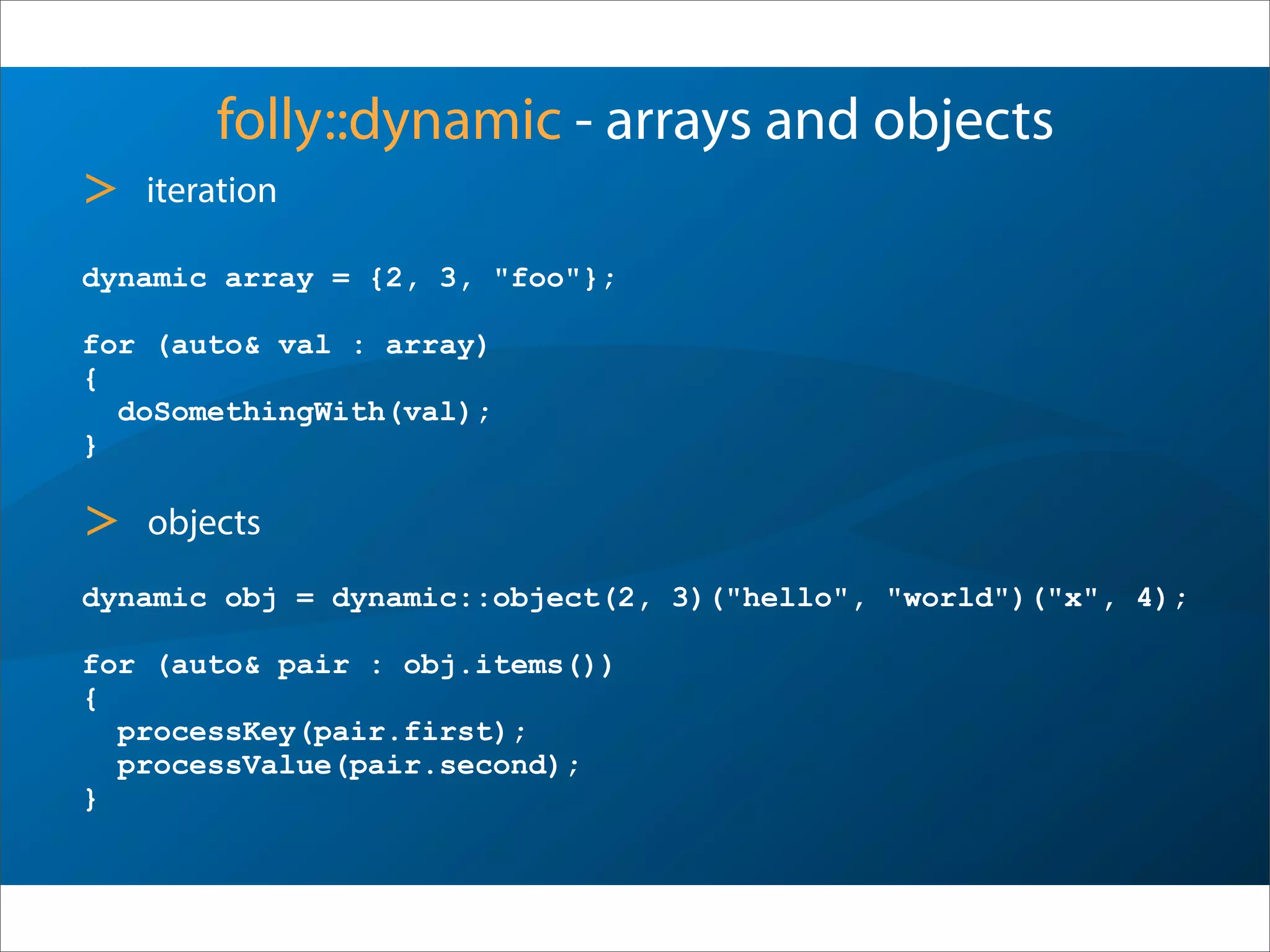
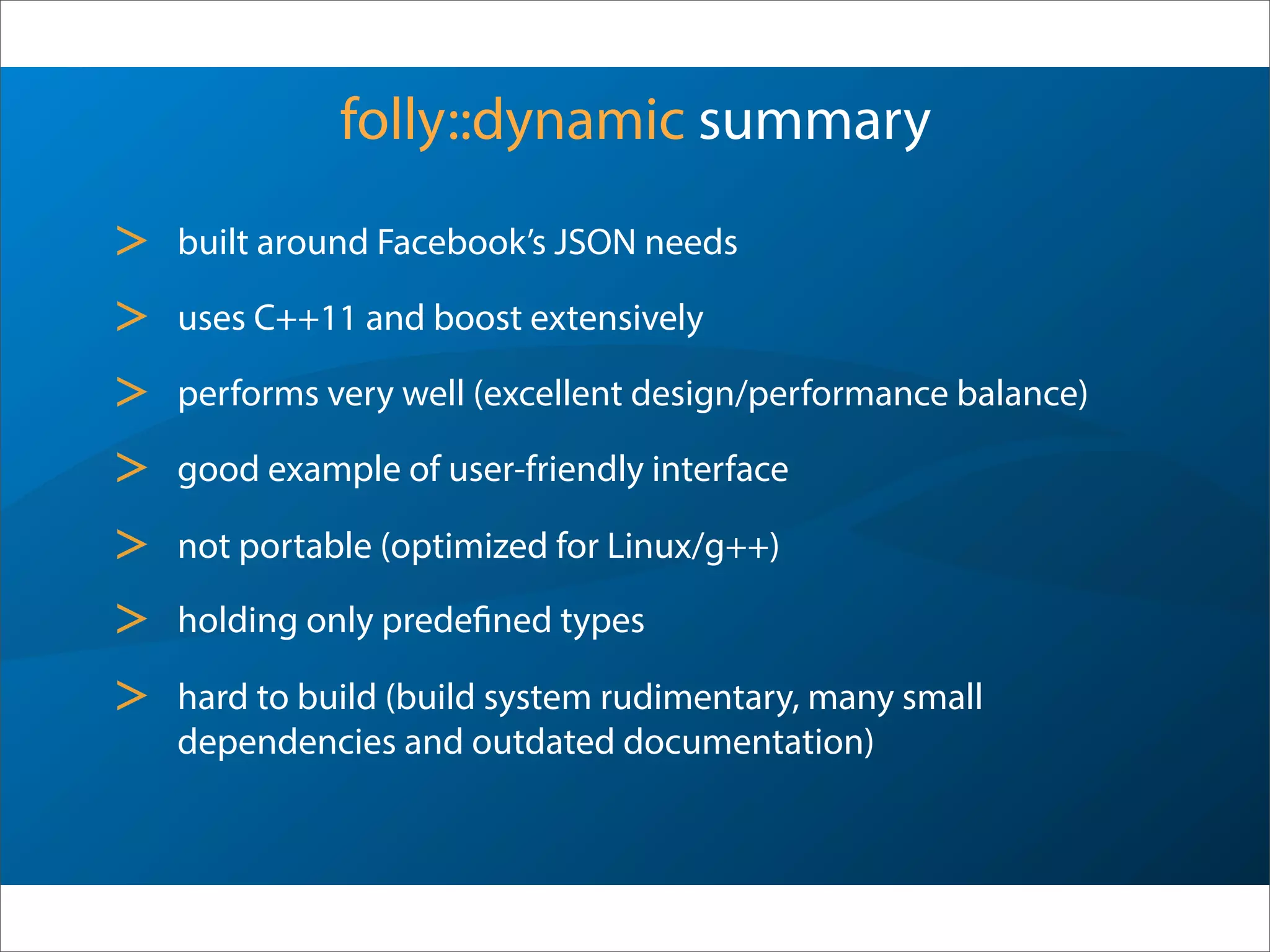
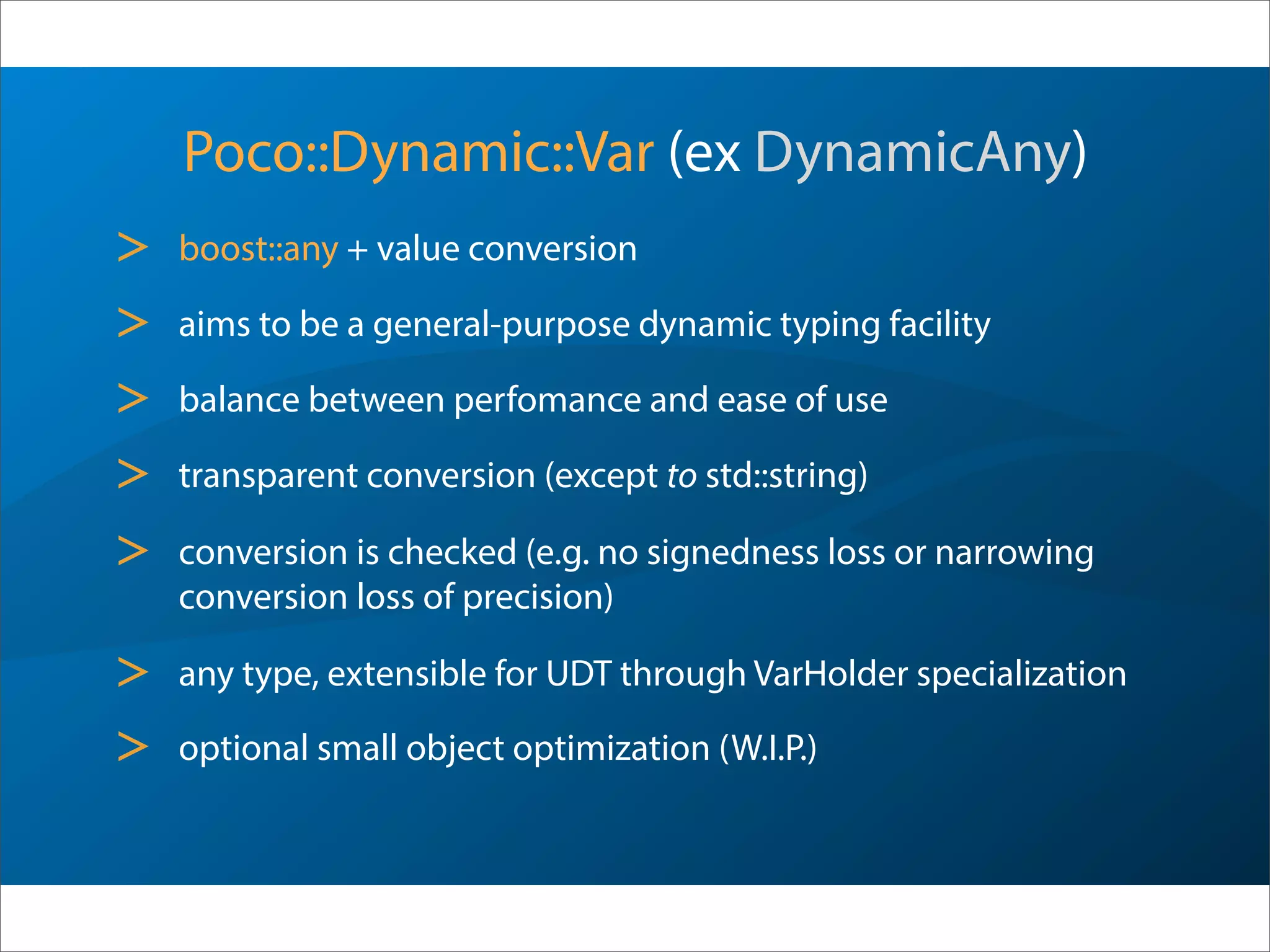
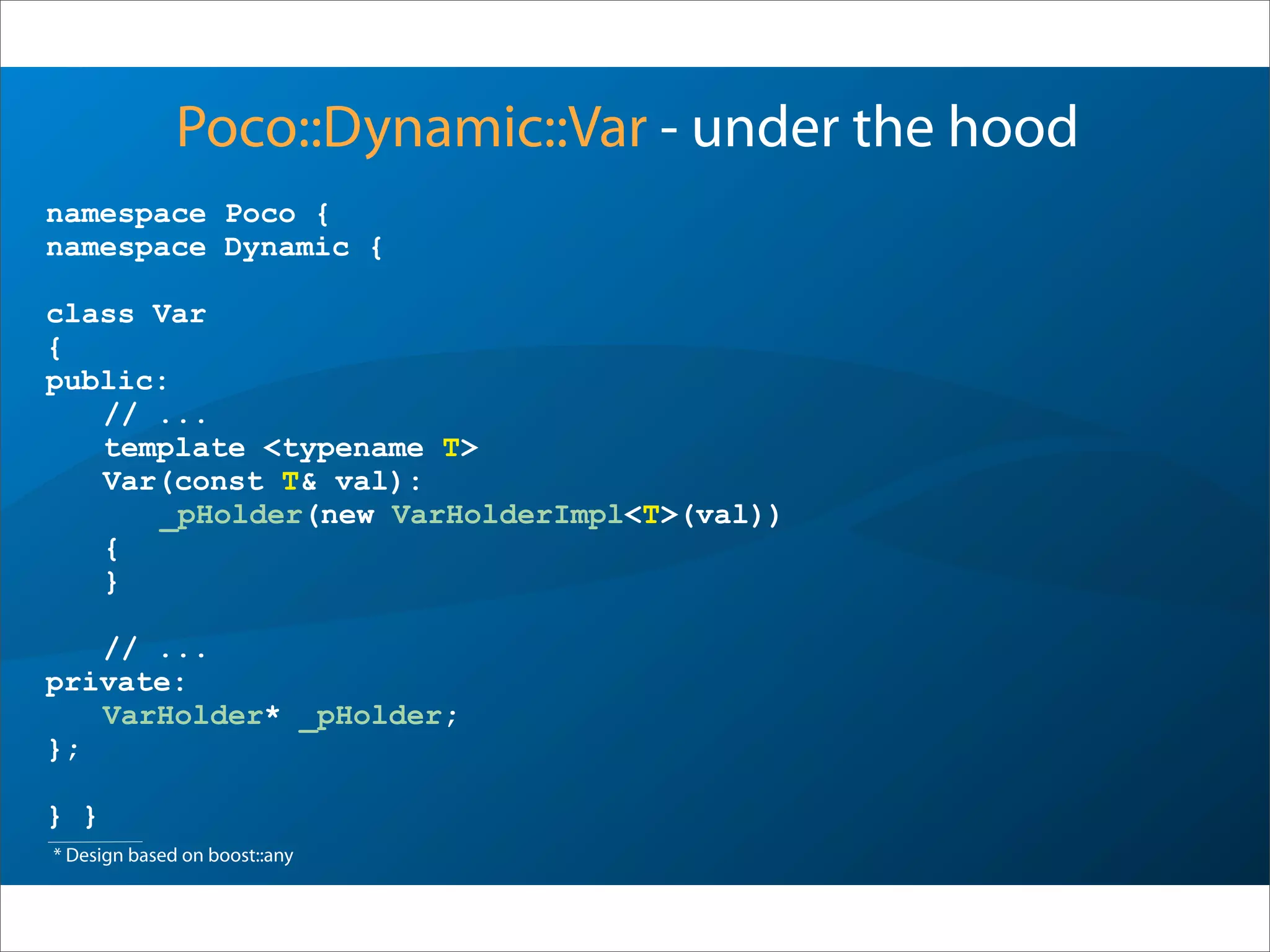
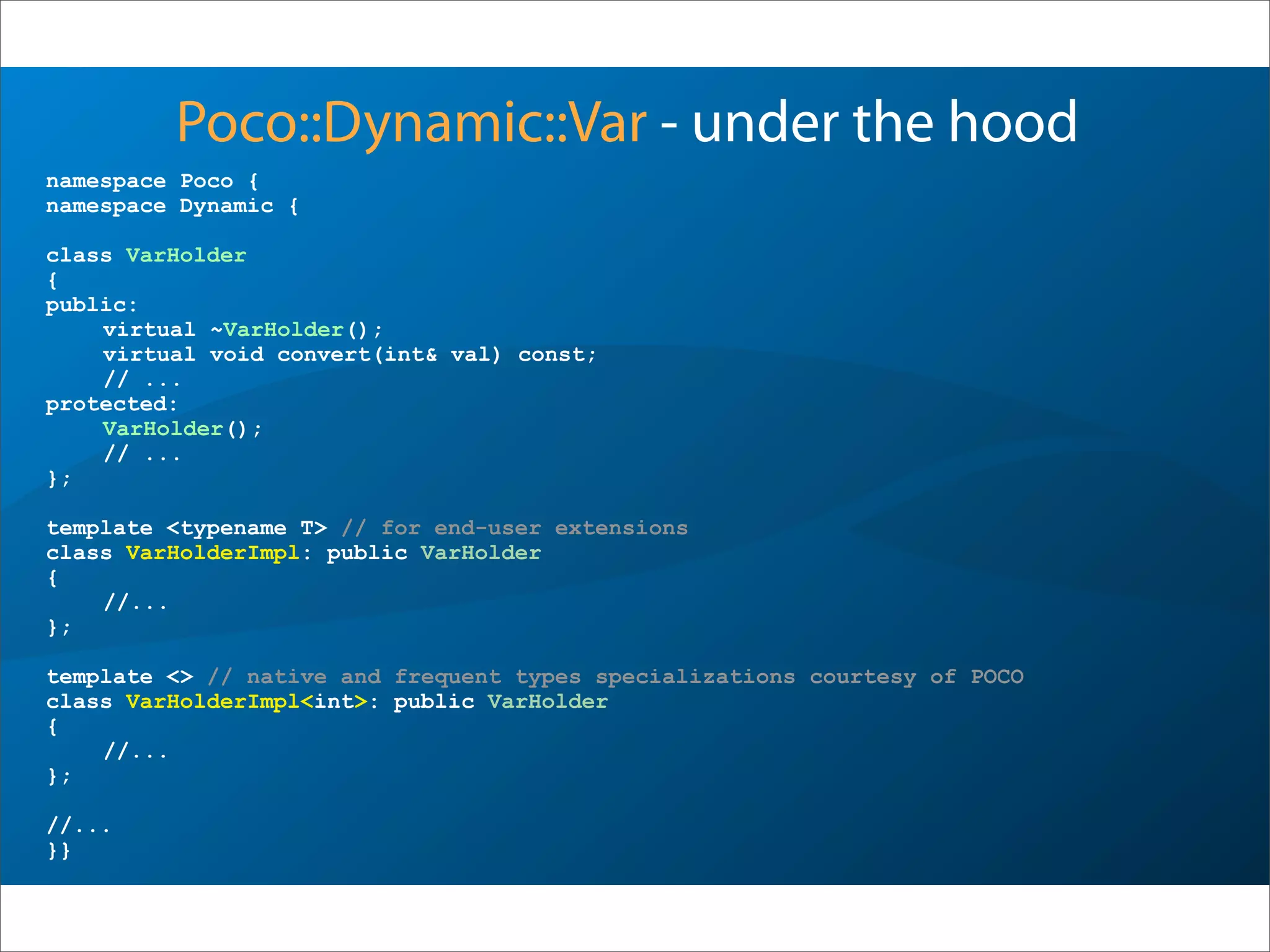
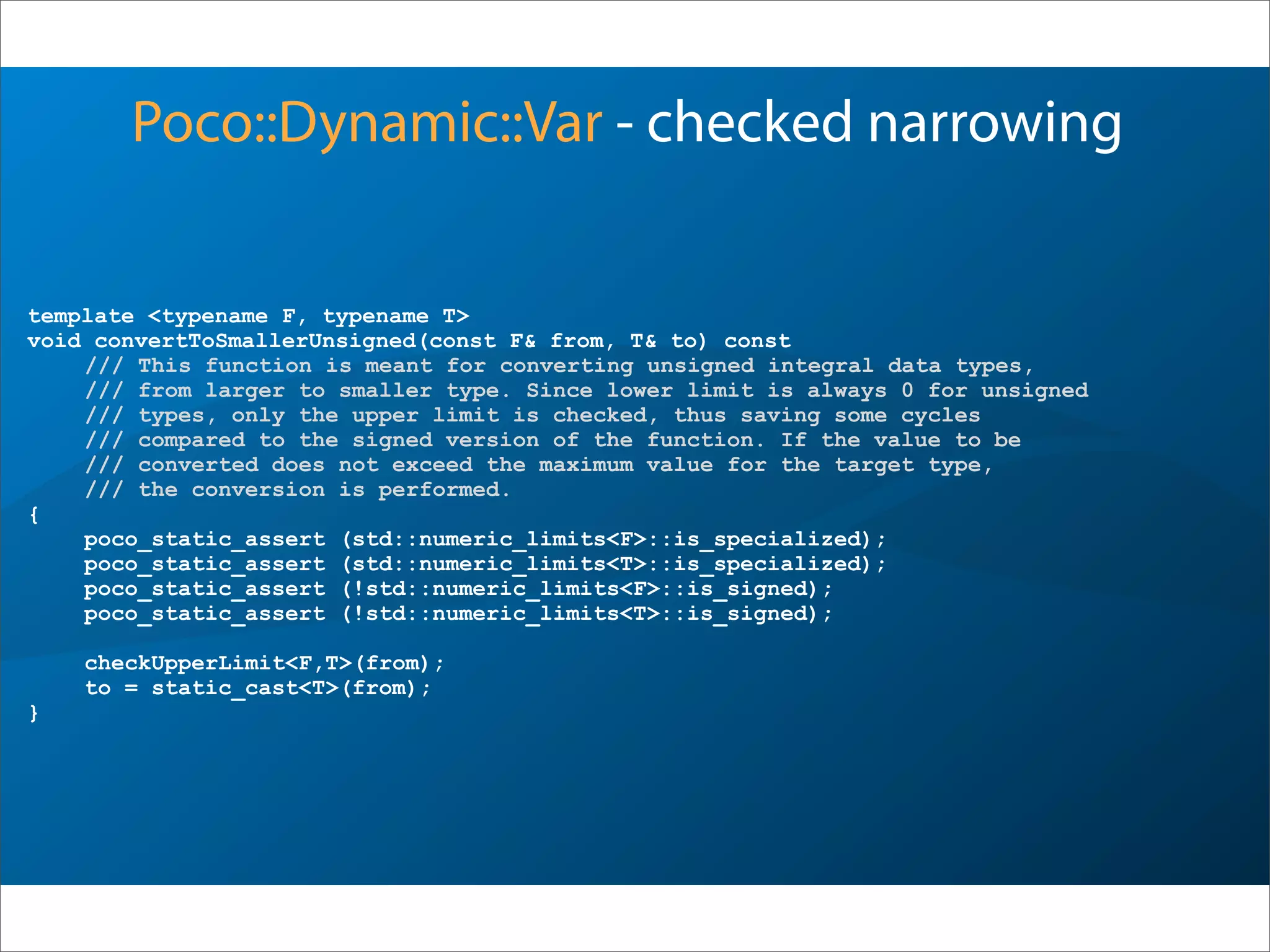
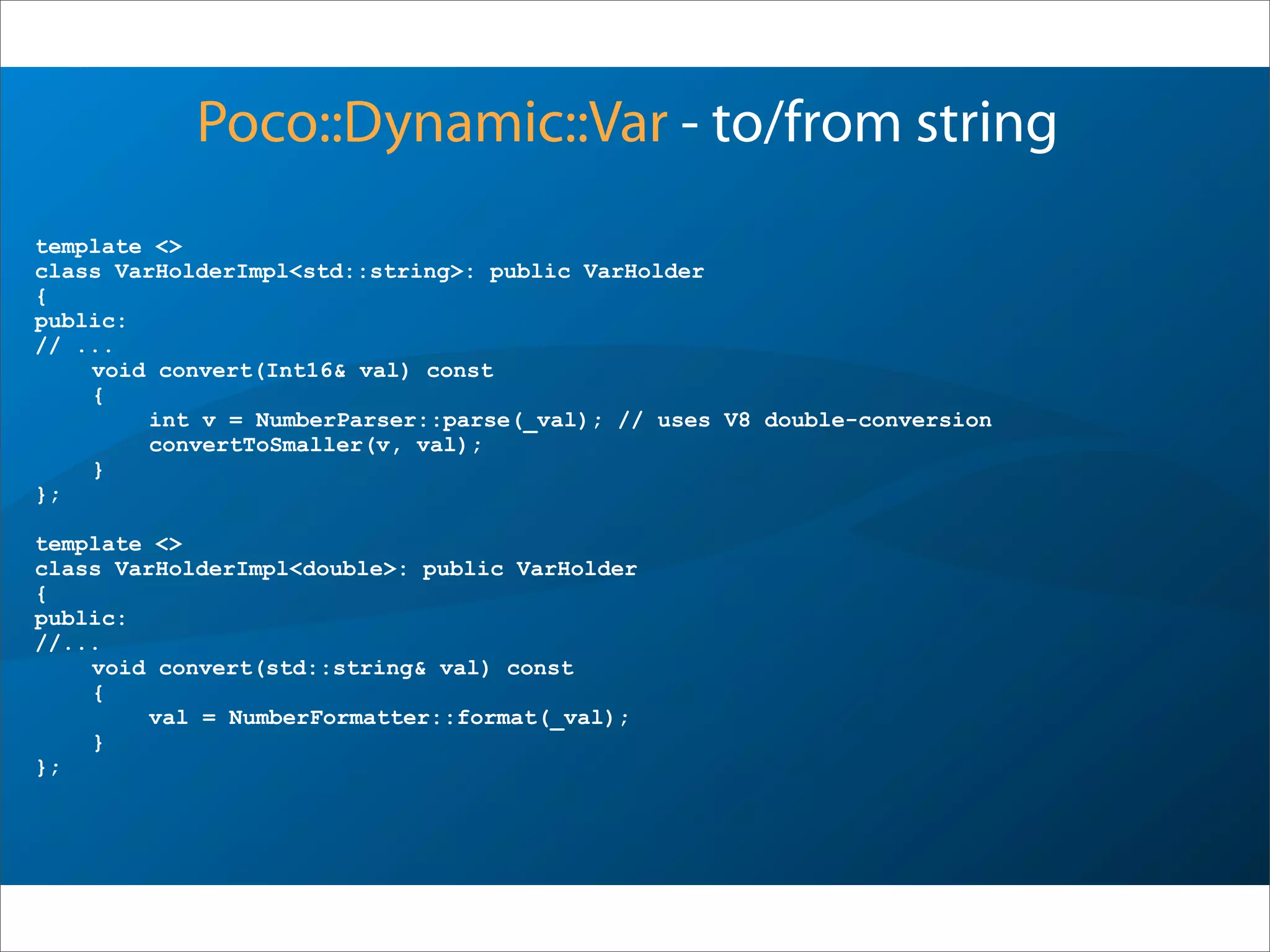
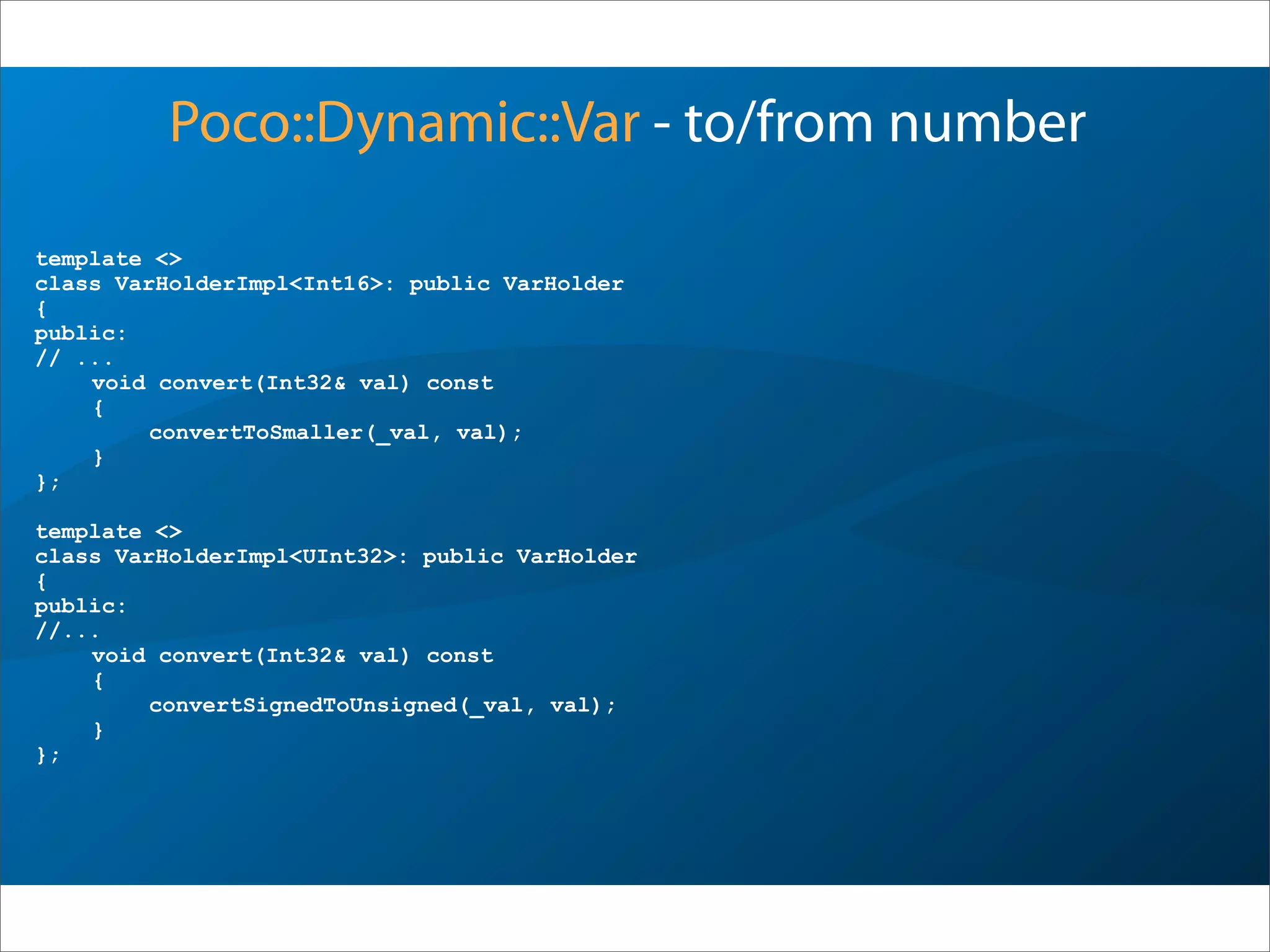
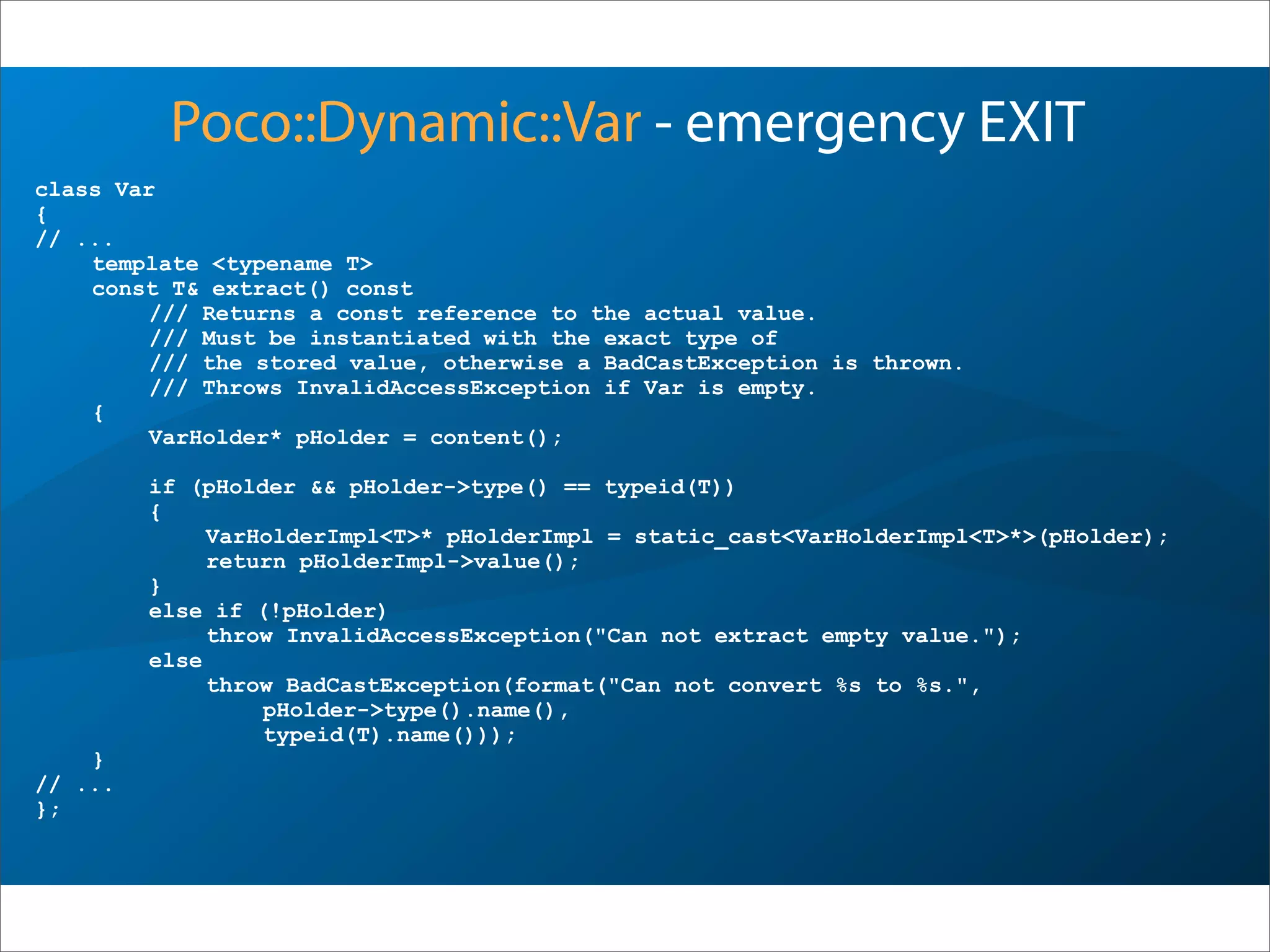
![Var in Practical Use
std::string s1("string");
Poco::Int8 s2(23);
std::vector<Var> s3;
s3.push_back(s1);
s3.push_back(s2);
Var a1(s3);
std::string res = a1.toString(); // ["string", 23]
DynamicStruct aStruct;
aStruct["First Name"] = "Bart";
aStruct["Last Name"] = "Simpson";
aStruct["Age"] = 10;
Var a1(aStruct);
std::string res = a1.toString(); // no implicit conversion :-(
// { "Age": 10, "First Name": "Bart", "Last Name" : "Simpson" }
std::string str("42");
Var v1 = str; // "42"
int i = v1 // 42
v1 = i; // 42
++v1; // 43
double d = v1; // 43.0
Var v2 = d + 1.0; // 44.0
float f = v2 + 1; // 45.0
Dynamic::Struct<int> aStruct;
aStruct[0] = "First";
aStruct[1] = "Second";
aStruct[2] = 3;
std::string res = aStruct.toString();//{ "0" : "First", "1" : "Second", "2" : 3 }](https://image.slidesharecdn.com/dynamiccaccu2013-130412011108-phpapp02/75/Dynamic-C-ACCU-2013-50-2048.jpg)
